Top 5 Ecommerce Platforms for B2B Ecommerce







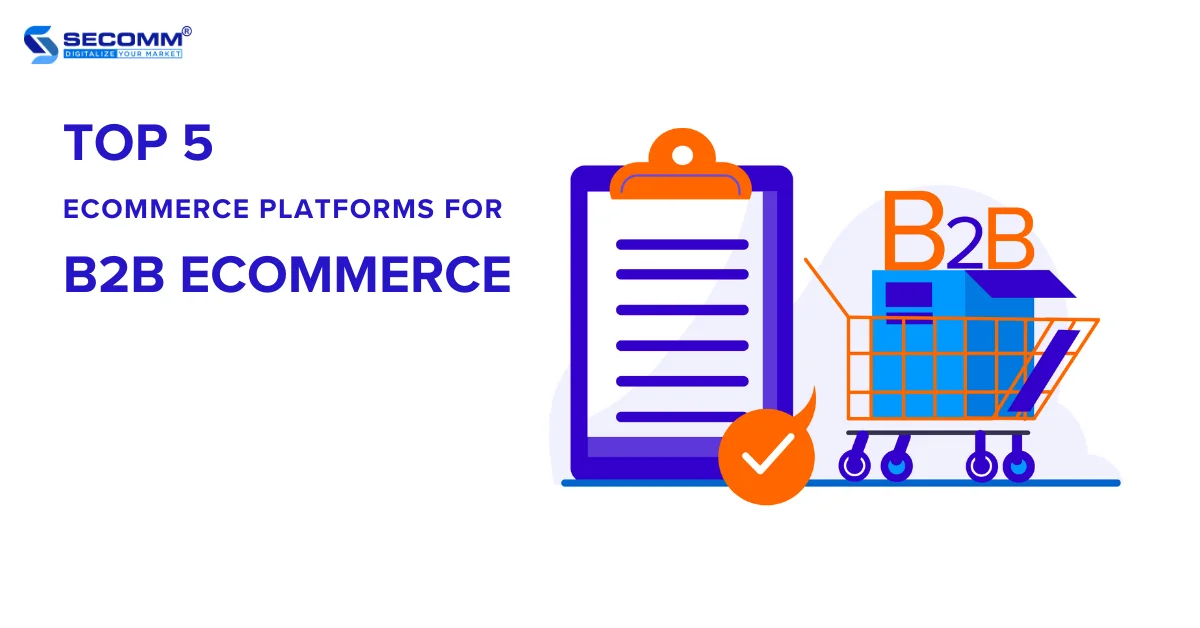
The global B2B eCommerce market is expected to reach $18.771.4 trillion by 2027.
According to McKinsey & Company, B2B enterprises are expanding their touchpoints in eCommerce, with 80% making online channels perform better than offline channels.
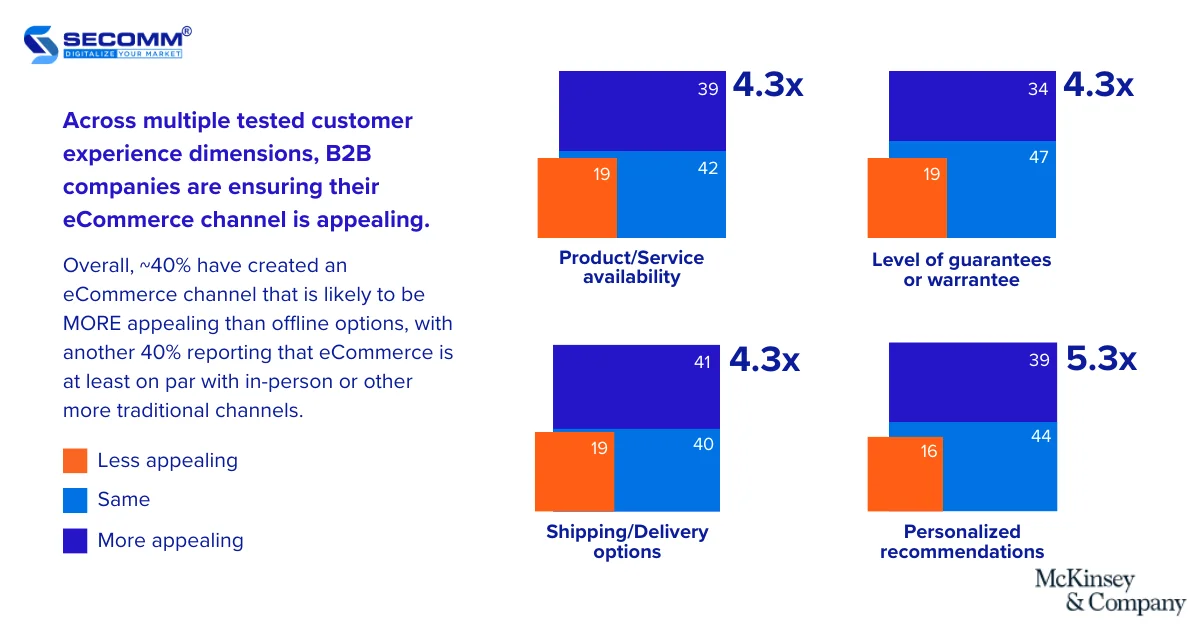
Therefore, B2B eCommerce is a rapidly growing market, with projected sales expected to reach 12.2 trillion USD by 2023. To succeed in this market, businesses always need a robust eCommerce platform.
1. What to Consider When Building a B2B eCommerce Website?
It is crucial for businesses to clearly define the specificities and considerations of B2B eCommerce before deciding on which eCommerce platform to implement.
Specifically, Business-to-Business (B2B) eCommerce involves commercial transactions between businesses. As a result, B2B eCommerce has distinct characteristics compared to Business-to-Consumer (B2C) eCommerce, namely:
- Target customers are businesses and organizations with the need for bulk purchasing and wholesale prices.
- Transactions are more complex, often requiring negotiations and contract agreements.
- High competitive, as numerous businesses offer similar products and services.
To succeed in B2B eCommerce, businesses need to take note of the following considerations:
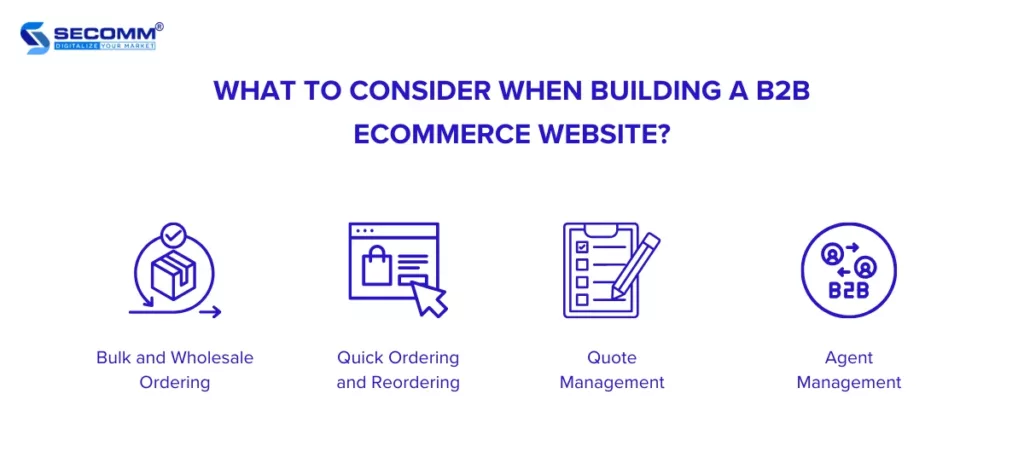
Bulk and Wholesale Ordering
Bulk and wholesale ordering are crucial factors in the revenue of B2B businesses. The quantity and pricing can vary for each business depending on the customer group and the purchased product categories.
To efficiently handle these orders in B2B eCommerce, businesses need to use order management systems and establish clear, detailed, and appropriate order processing workflows.
Quick Ordering and Reordering
The feature of quick ordering is often provided by B2B eCommerce platforms, allowing customers to create and place orders with just a few clicks. Quick ordering can be implemented through various methods, such as:
- Automating the ordering process: Using automation solutions enables customers to place orders without manually entering information.
- Integration with ERP systems: Integrating with ERP systems allows customers to place orders directly from the ERP system.
- Integration with mobile apps: Integrating with mobile apps allows customers to place orders from their mobile devices.
Unlike individual customers, B2B customers often repeat purchases of specific product categories in seasonal quantities. Therefore, B2B businesses should also incorporate a feature to remember previous orders for quick reordering.
Quote Management
Quote management in B2B eCommerce is a crucial process that helps businesses provide accurate and timely pricing information to customers, ultimately increasing sales and improving profits.
Specifically, in quote management, negotiating prices with multiple quote versions or from different suppliers is an important part of many B2B eCommerce models, allowing businesses to negotiate prices for large or complex transactions.
Agent Management
Managing information about agents, such as agent details, agent approval processes, agent hierarchies, credit limits, stock management for each agent, and managing discounts/commissions for agents, is essential.
Additionally, for B2B models involving multiple manufacturers and distributors, there may be a need for additional management of relationships between these entities and agents.
Therefore, depending on the current offline business model and the B2B eCommerce business model that the business aims to establish the most effective agent management process should be detailed.
2. Top 5 eCommerce Platforms for B2B Businesses
Below are the top 5 eCommerce platforms for B2B businesses, capable of addressing the specificities of B2B eCommerce.
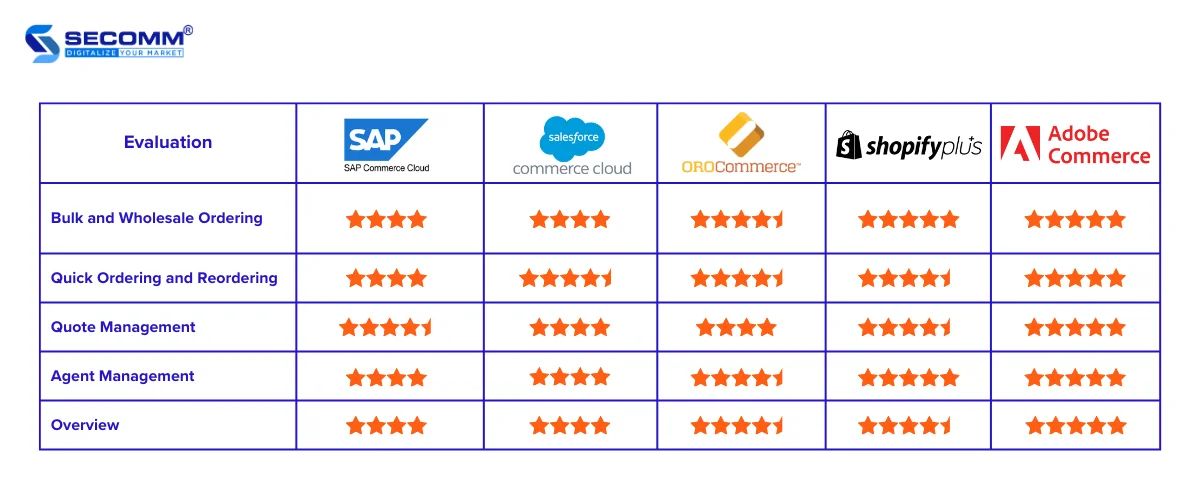
SAP Commerce Cloud
SAP Commerce Cloud is a powerful eCommerce platform suitable for B2B eCommerce businesses.
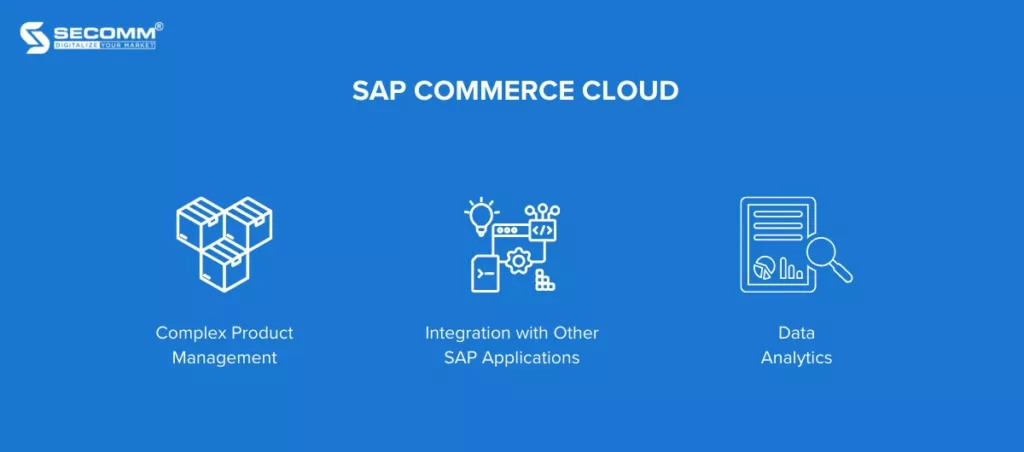
Here are some ways in which SAP Commerce Cloud can cater to B2B eCommerce:
- Complex Product Management: Allows the management of a range of complex products and services, including custom products and product categorizations. This is particularly useful for B2B businesses with a wide range of products and variations.
- Integration with Other SAP Applications: SAP Commerce Cloud can integrate with other SAP applications, such as SAP Sales Cloud and SAP Service Cloud, creating a comprehensive business system.
- Data Analytics: Provides data analytics tools to help B2B businesses track business performance, understand customer behaviour, and make data-driven decisions.
Therefore, SAP Commerce Cloud can align with B2B eCommerce by offering features and customization capabilities to meet the specific requirements of businesses in the B2B industry.
Salesforce B2B Commerce
Salesforce B2B Commerce is an eCommerce platform designed for large enterprises, including B2B businesses.
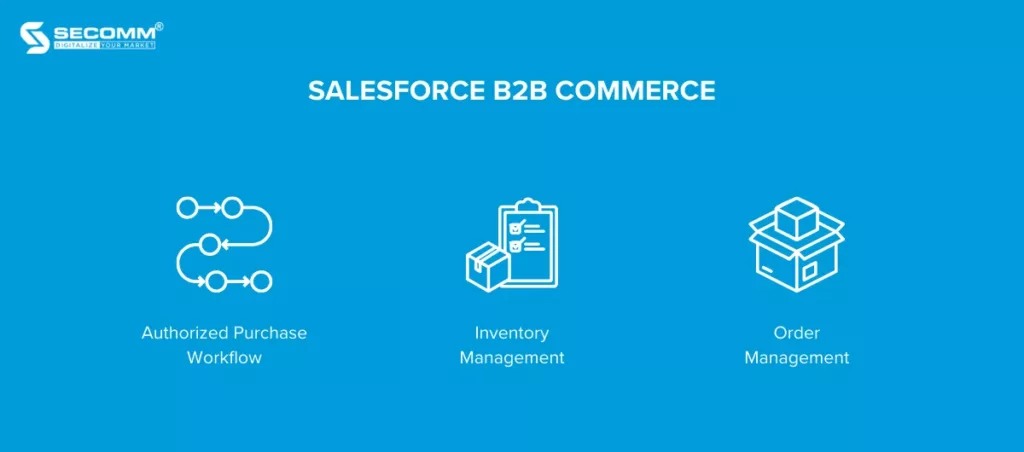
Here are some specific features and functionalities of Salesforce B2B Commerce that are suitable for B2B eCommerce:
- Authorized Purchase Workflow: Allows B2B businesses to have full control over purchasing transactions, enabling the modification of certain details from previous orders before reordering.
- Inventory Management: Streamlines the order fulfilment process and provides a clear and consistent view of inventory for both the eCommerce website and offline channels.
- Order Management: Provides robust features for order management, including the ability to automate processes, track order progress, and integrate with shipping services.
In summary, the B2B functionalities of Salesforce B2B Commerce help B2B businesses enhance sales and customer service effectiveness.
OroCommerce
OroCommerce is an open-source eCommerce platform designed for B2B enterprises. This platform provides powerful and flexible features, catering to the needs of B2B businesses of all sizes.
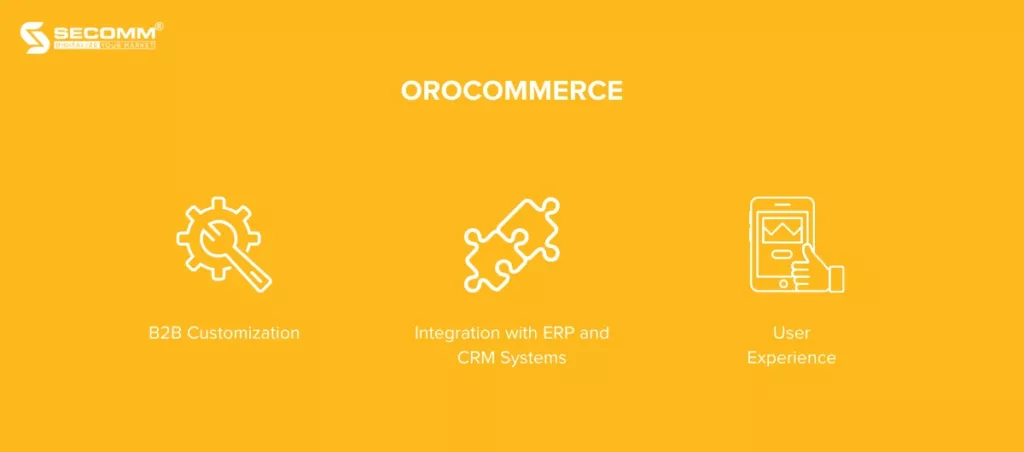
OroCommerce offers several features and functionalities specifically suitable for B2B eCommerce, including:
- B2B Customization: Provides features and functionalities for customizing the online store to align with the needs of B2B businesses, such as the ability to create price lists, request quotes, and place batch orders.
- Integration with ERP and CRM Systems: OroCommerce can be integrated with ERP and CRM systems to create a seamless sales and backend process.
- User Experience: Delivers a user experience designed specifically for B2B businesses, including the ability to create customer accounts, manage orders, and track purchase history.
Overall, OroCommerce is a robust eCommerce platform worth considering for B2B enterprises.
Shopify Plus
Shopify Plus is a cloud-based SaaS eCommerce platform designed for large enterprises, especially B2B businesses.
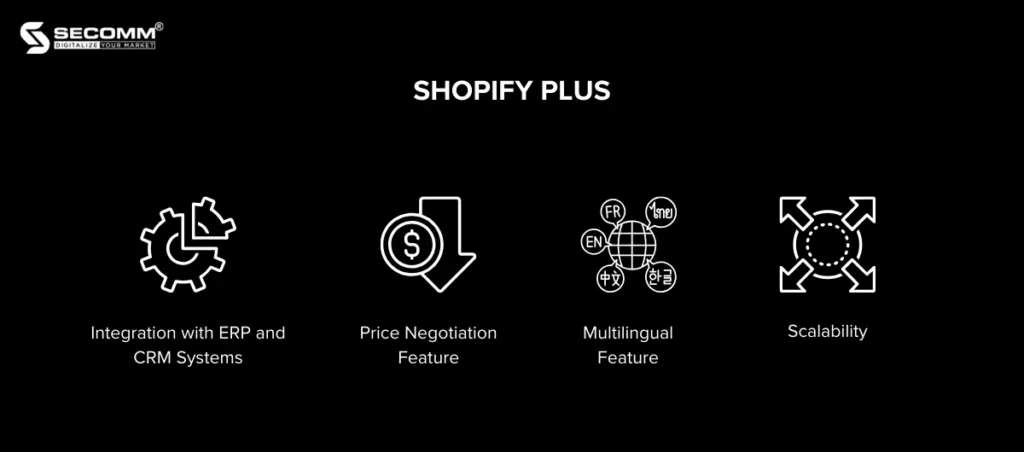
Shopify Plus provides powerful features and functionalities to meet the needs of B2B enterprises, including:
- Integration with ERP and CRM Systems: Shopify Plus can be integrated with popular ERP and CRM systems, allowing businesses to connect with existing business systems.
- Price Negotiation Feature: Provides price negotiation features, allowing businesses to negotiate prices with customers.
- Multilingual Feature: Shopify Plus can be used to create multilingual stores, enabling businesses to reach customers in multiple countries.
- Scalability: Websites built with Shopify Plus can be scaled to meet the growing needs of the business.
Some notable features of Shopify Plus that businesses can leverage include Shopify Flow, Shopify Launchpad, Shopify Payments, Shopify POS, etc.
Therefore, Shopify Plus is also an excellent choice for B2B businesses looking for a robust, flexible, and scalable eCommerce platform.
Xem thêm: 15 Lý do để chuyển đổi sang nền tảng Shopify Plus
Adobe Commerce (Magento)
Adobe Commerce (Magento) is a powerful and flexible eCommerce platform suitable for various types of businesses, including B2B enterprises.
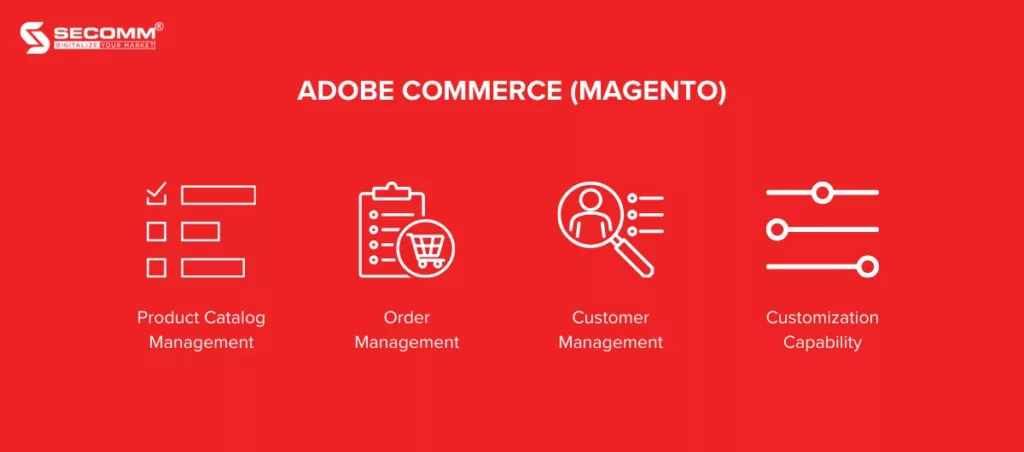
Adobe Commerce offers many features and functionalities that are well-suited for B2B eCommerce, including:
- Product Catalog Management: Provides features for managing the product catalogue, including the ability to create complex product catalogues, manage pricing and promotions, and track inventory.
- Order Management: Offers features for order management, including the ability to automate processes, track order progress, and integrate with shipping services.
- Customer Management: Provides features for managing customers, including the ability to create customer profiles, track purchase history, and send marketing emails.
- Customization Capability: As an open-source platform, it allows businesses to customize to meet specific needs.
Moreover, Adobe Commerce can quickly deploy B2B-specific features thanks to its diverse ecosystem. It is also the most customizable platform among the five mentioned.
Additionally, Adobe Commerce has a large and active user community, providing support and resources for B2B businesses.
Read more: Shopify Plus vs Adobe Commerce: Key Differences 2023
Above are 5 popular platforms preferred by B2B businesses to build eCommerce websites, serving online business goals for brands.
However, choosing the most suitable platform for each business will depend on various factors, including business strategy, budget, deployment timeline, and the long-term direction set by business managers.
Looking for a suitable eCommerce Website Development Solution?
With deep expertise and the development of complex eCommerce systems for clients such as Changi Airport Group (Singapore), Trentham Estate (Australia), and The Warehouse (Vietnam), SECOMM understands the challenges in choosing a platform and deploying eCommerce that businesses are facing.
- Comprehensive Understanding: Providing comprehensive eCommerce solutions from consulting, development, and operation to the growth of eCommerce systems.
- Deep Expertise: Over 9 years of experience in deploying complex eCommerce systems for clients from various countries.
- Customized Solutions: Proposing eCommerce solutions, including technological architecture and a suitable team for each business.
- Flexible Progress: Project timelines and schedules are adjusted according to the specific needs of the business.
Contact SECOMM now or call directly at the hotline number (028 7108 9908) for free advice on the eCommerce website building roadmap!






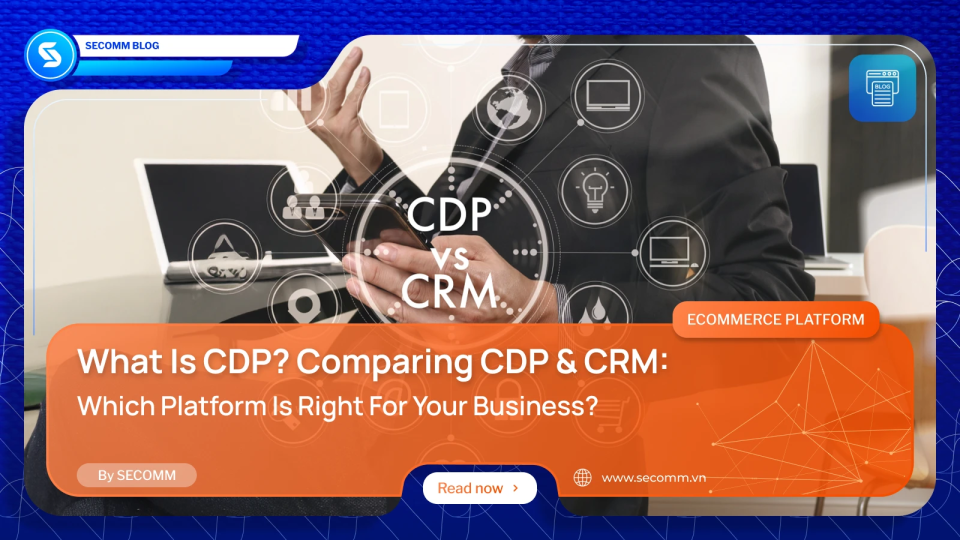
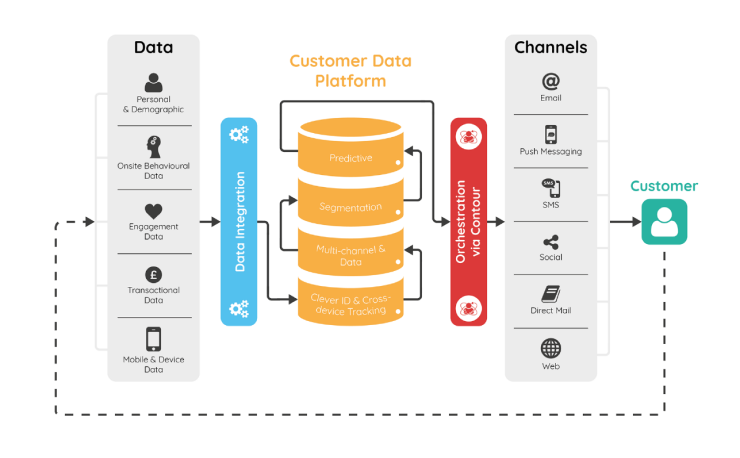
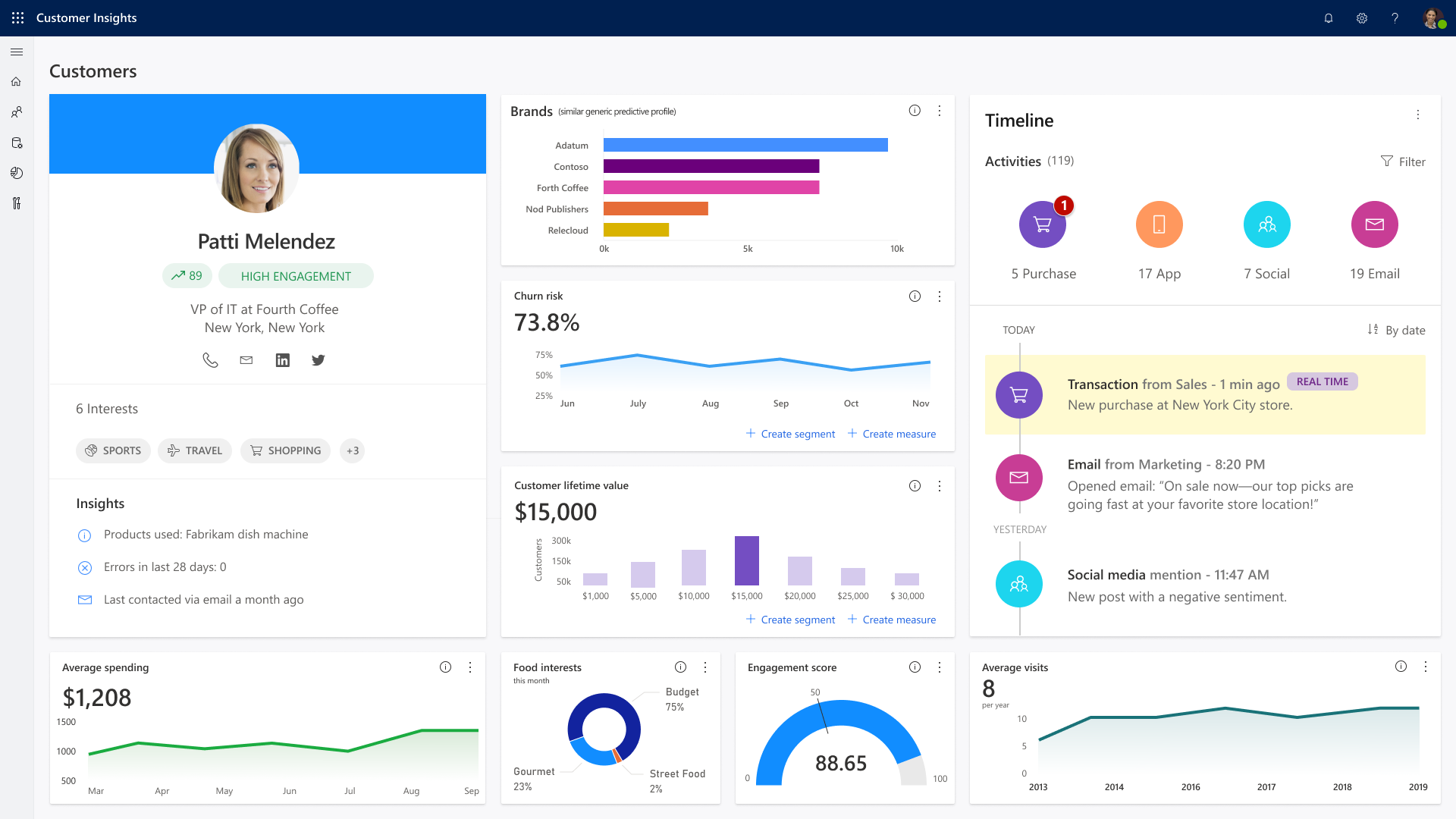

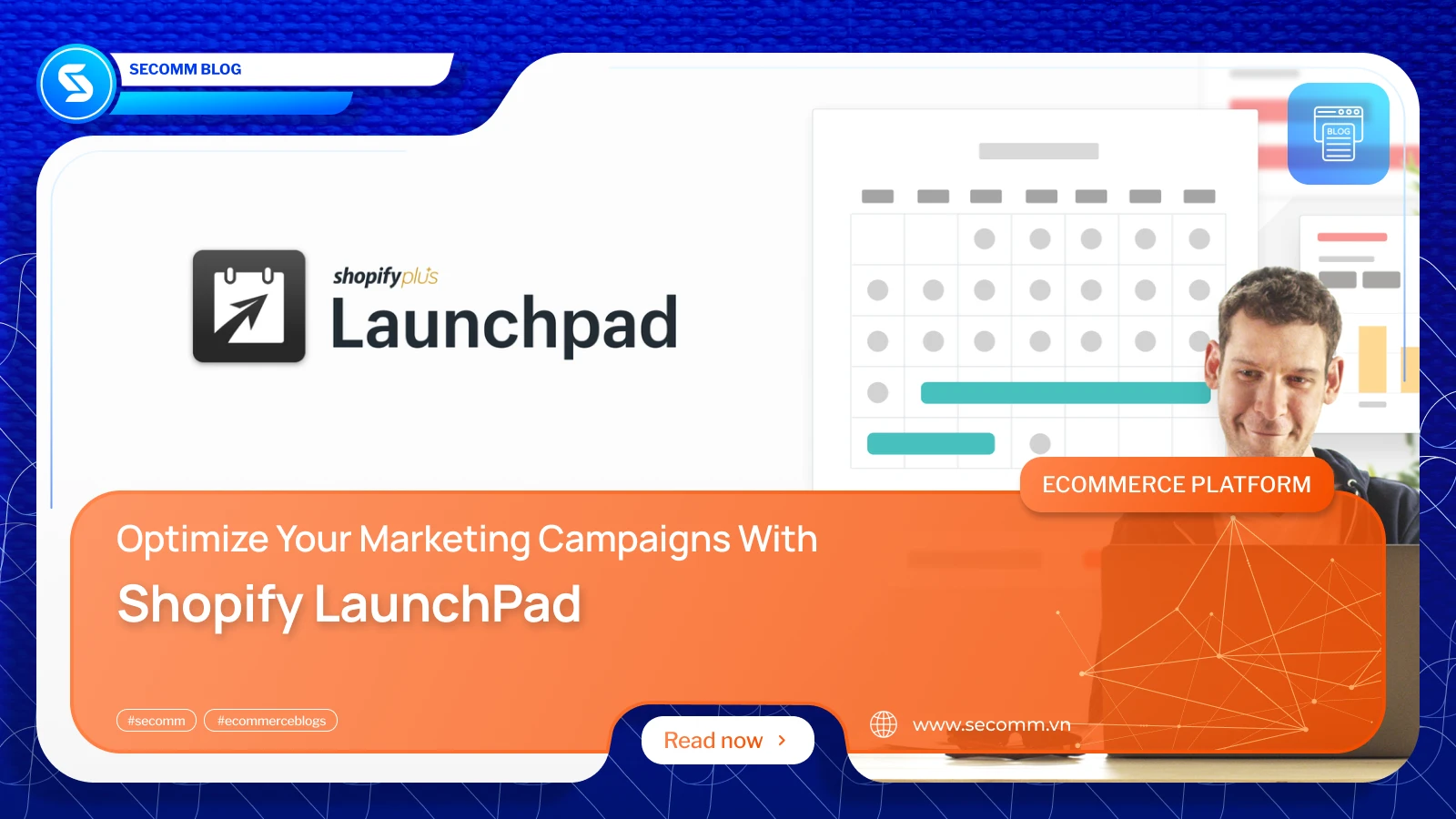



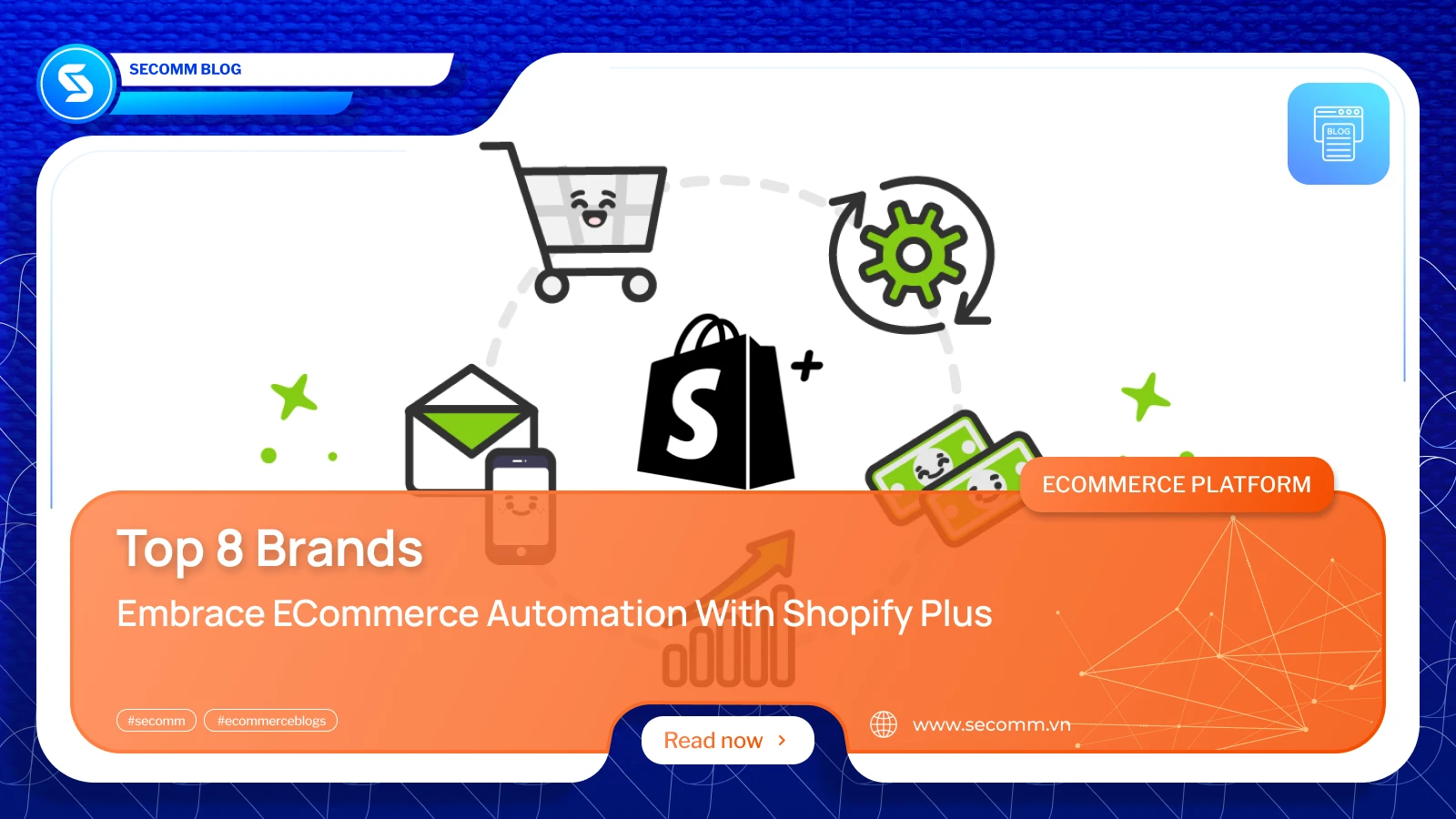


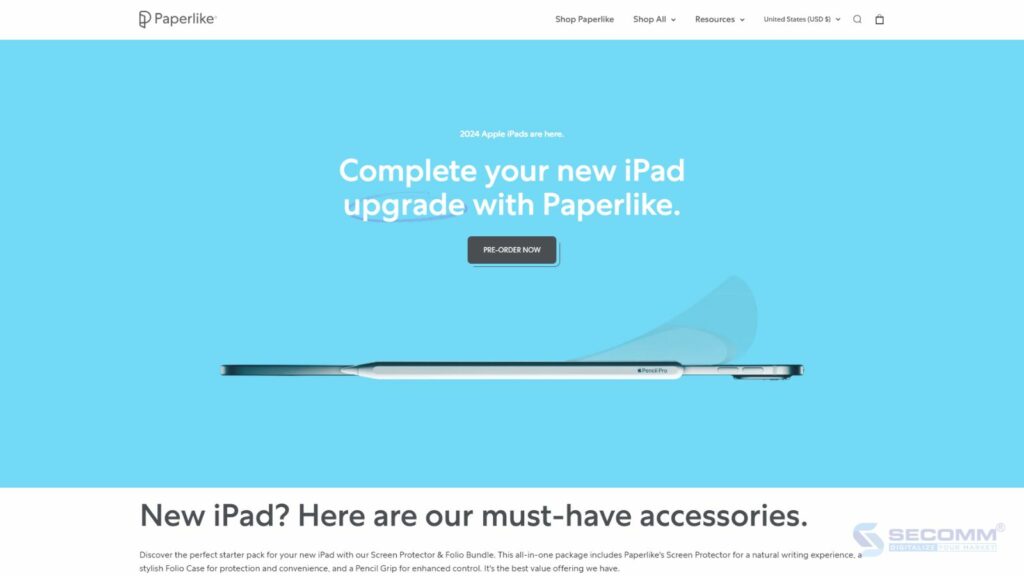


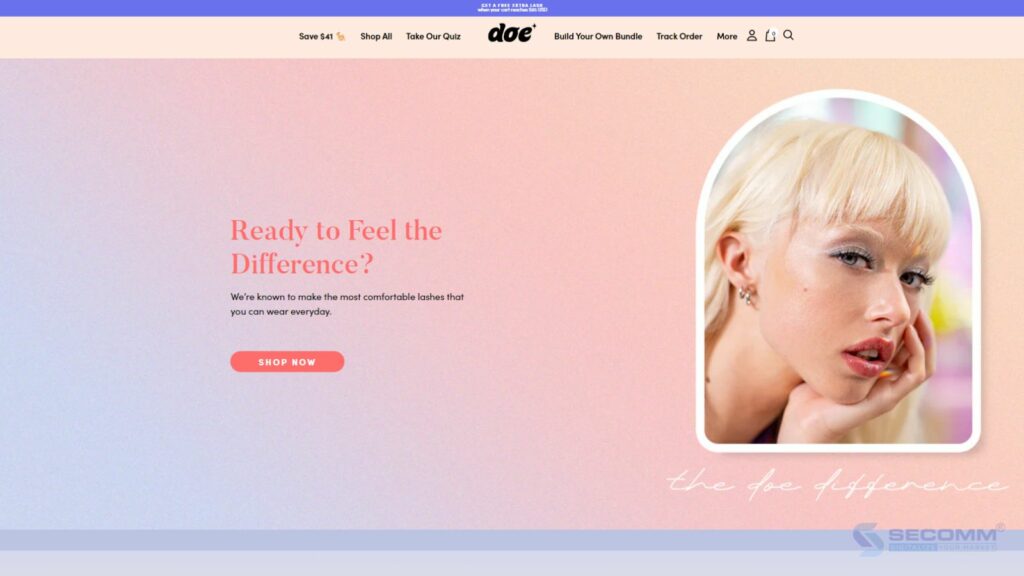


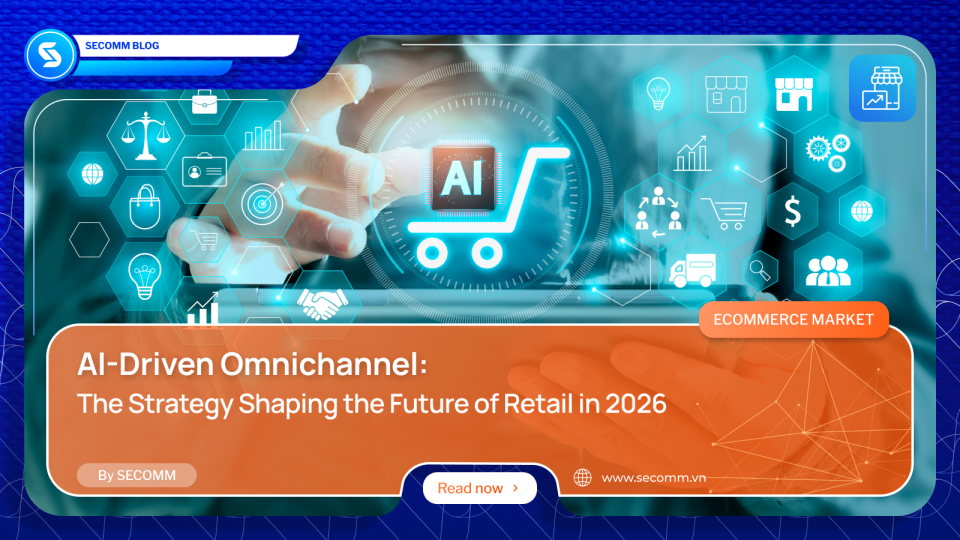
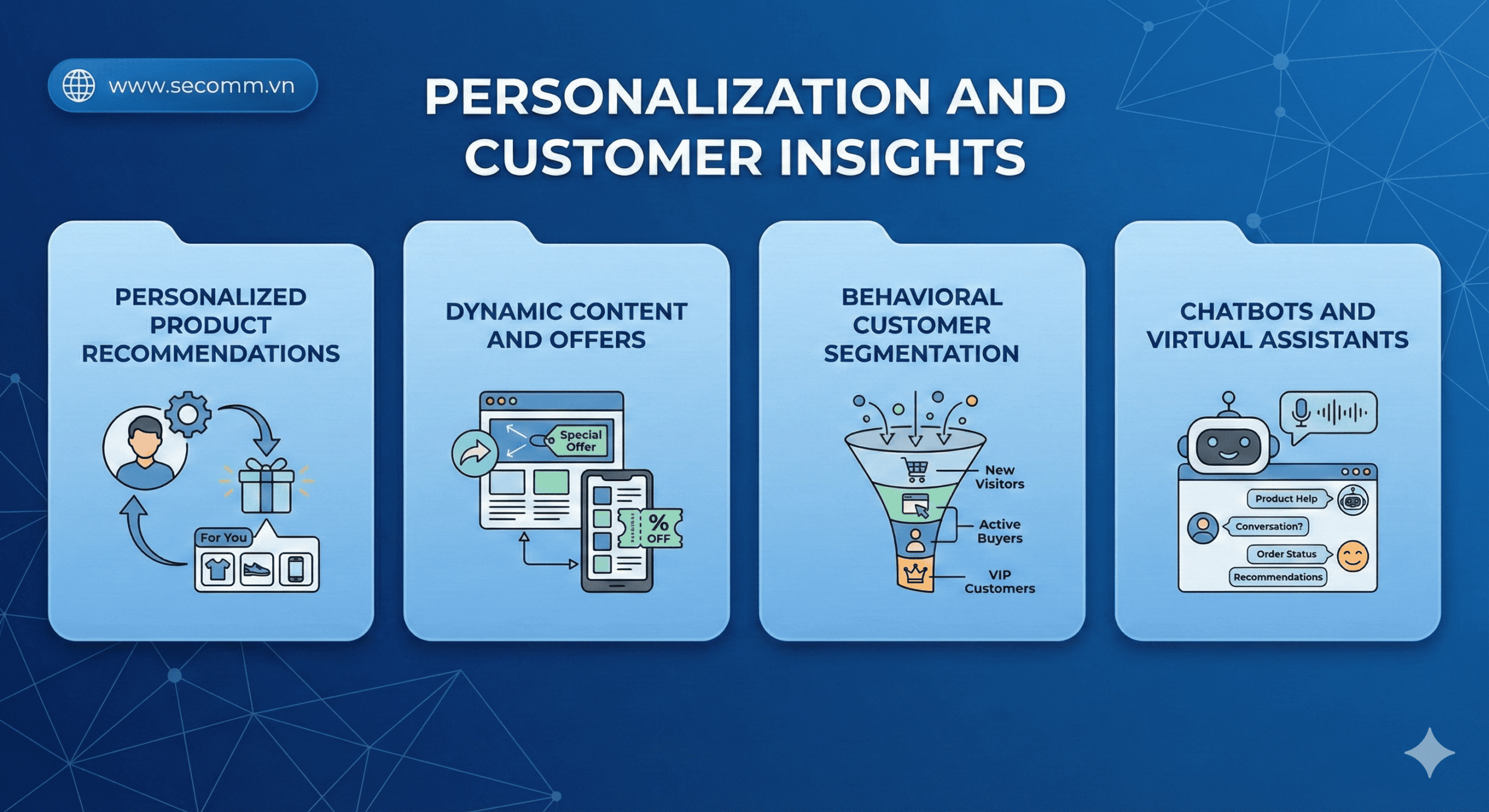
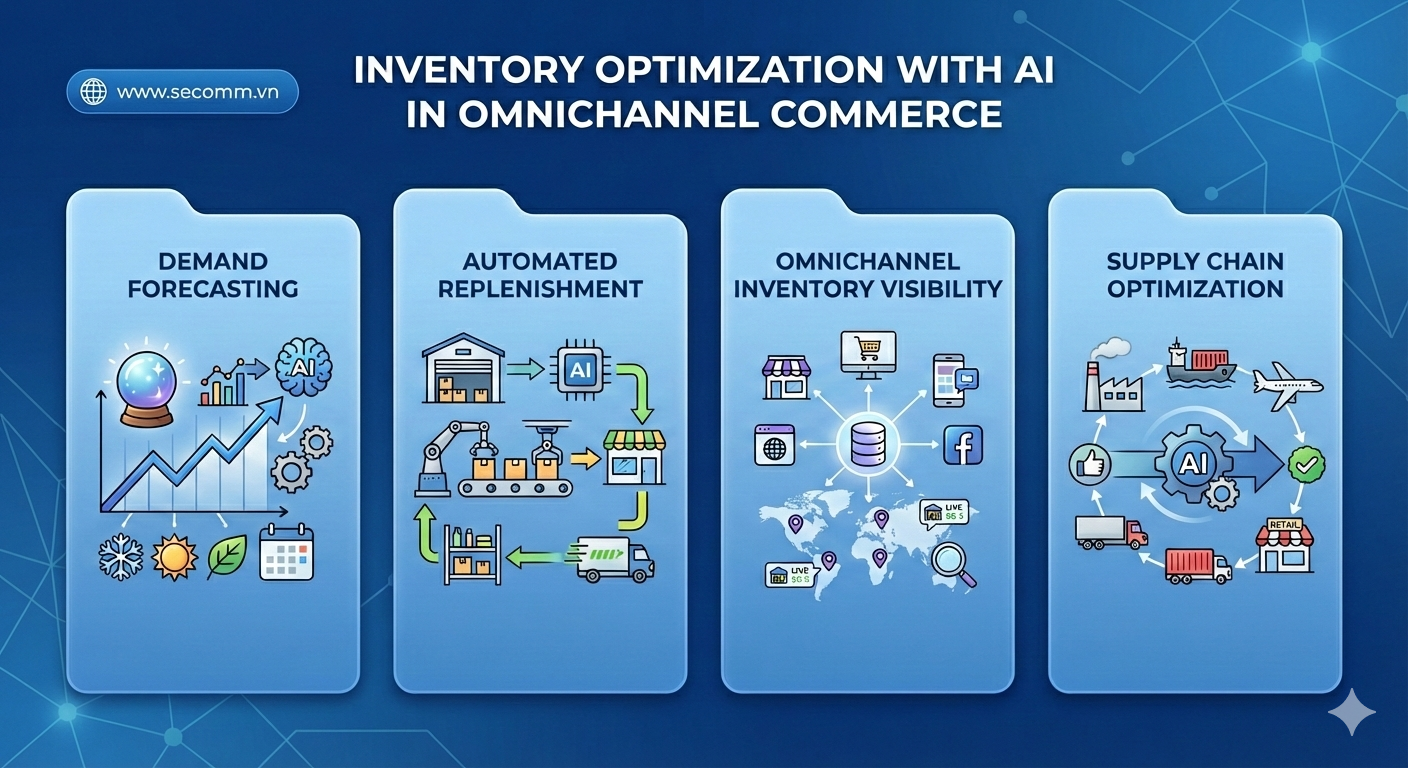
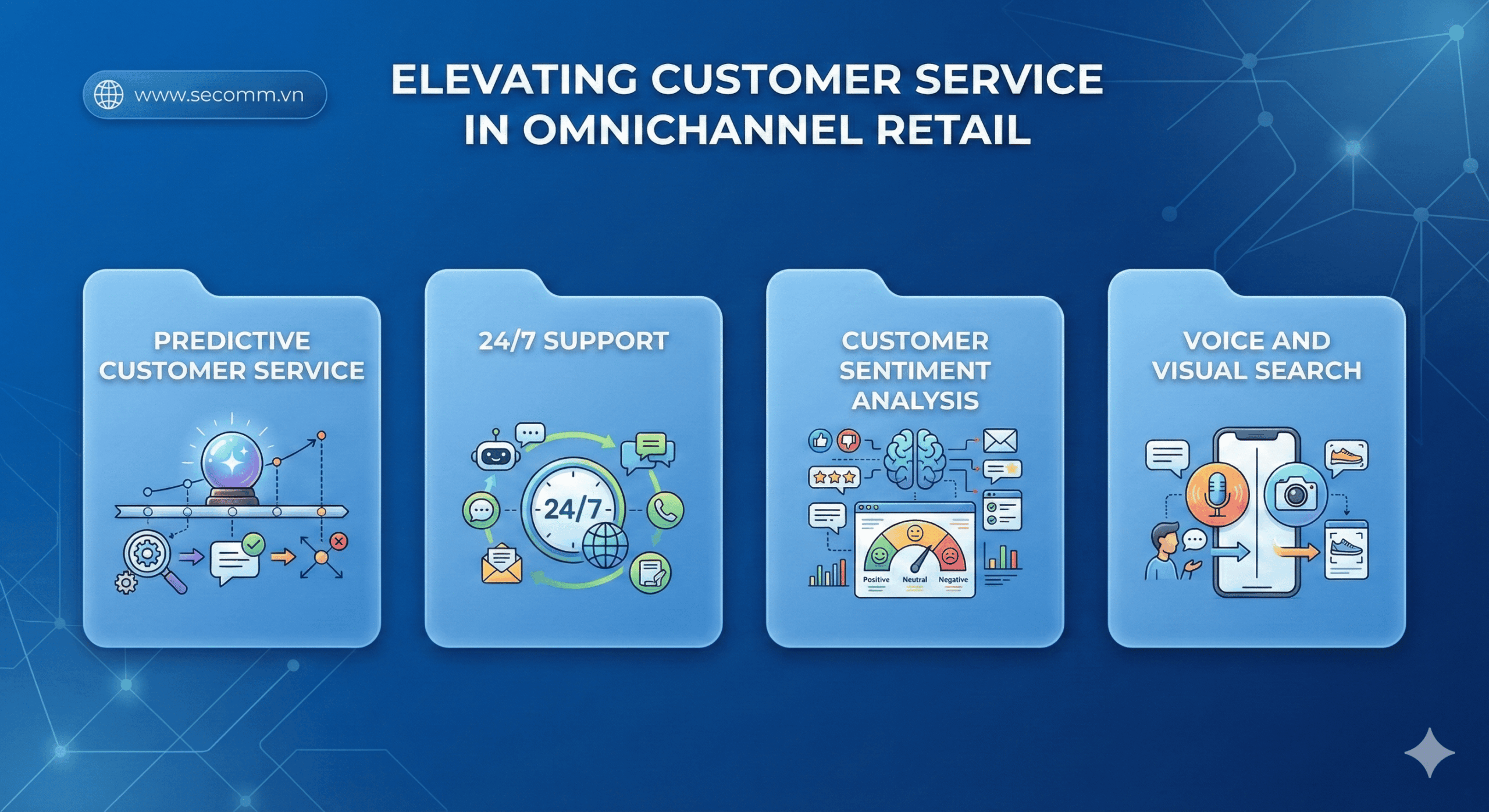
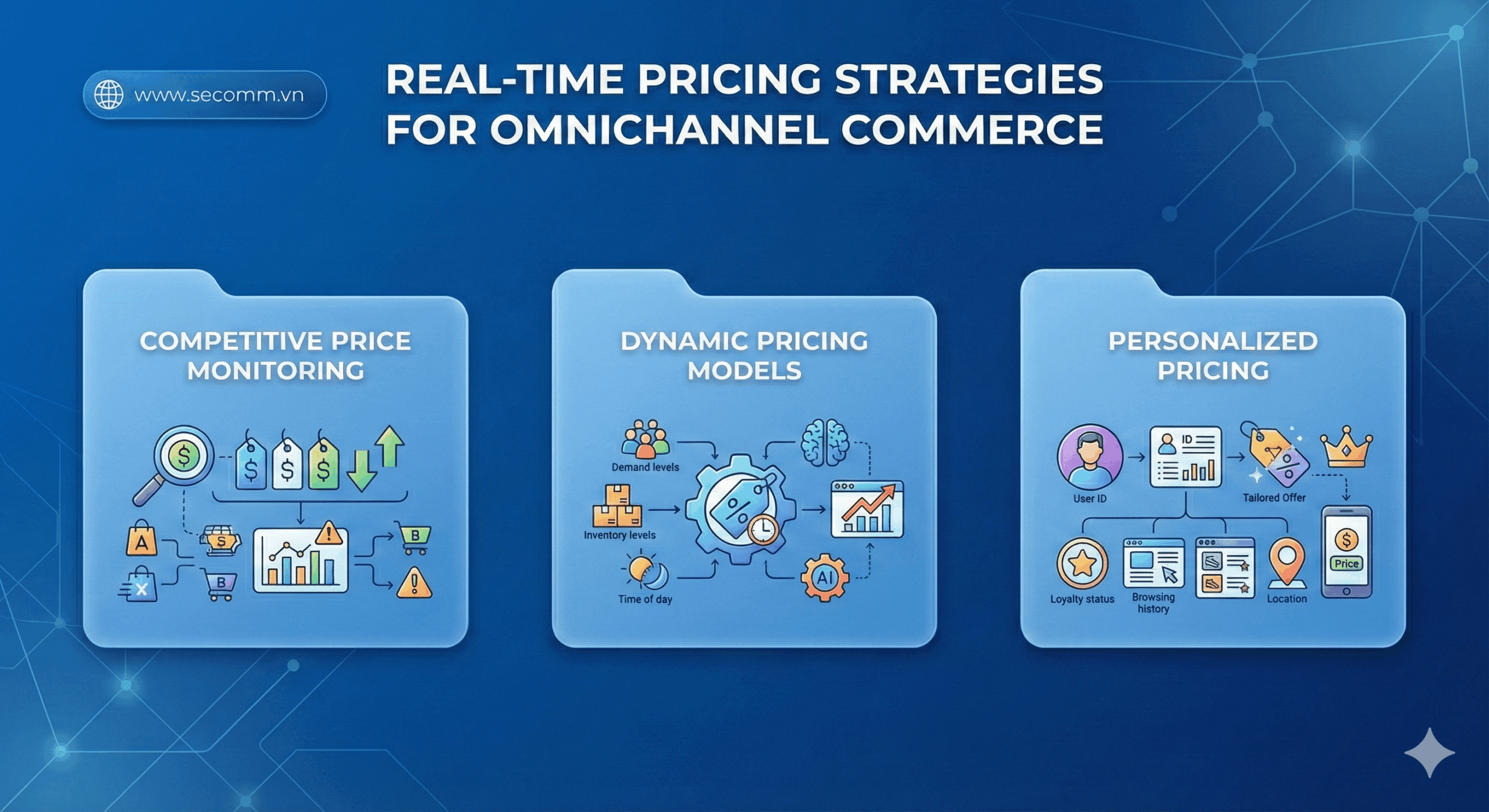
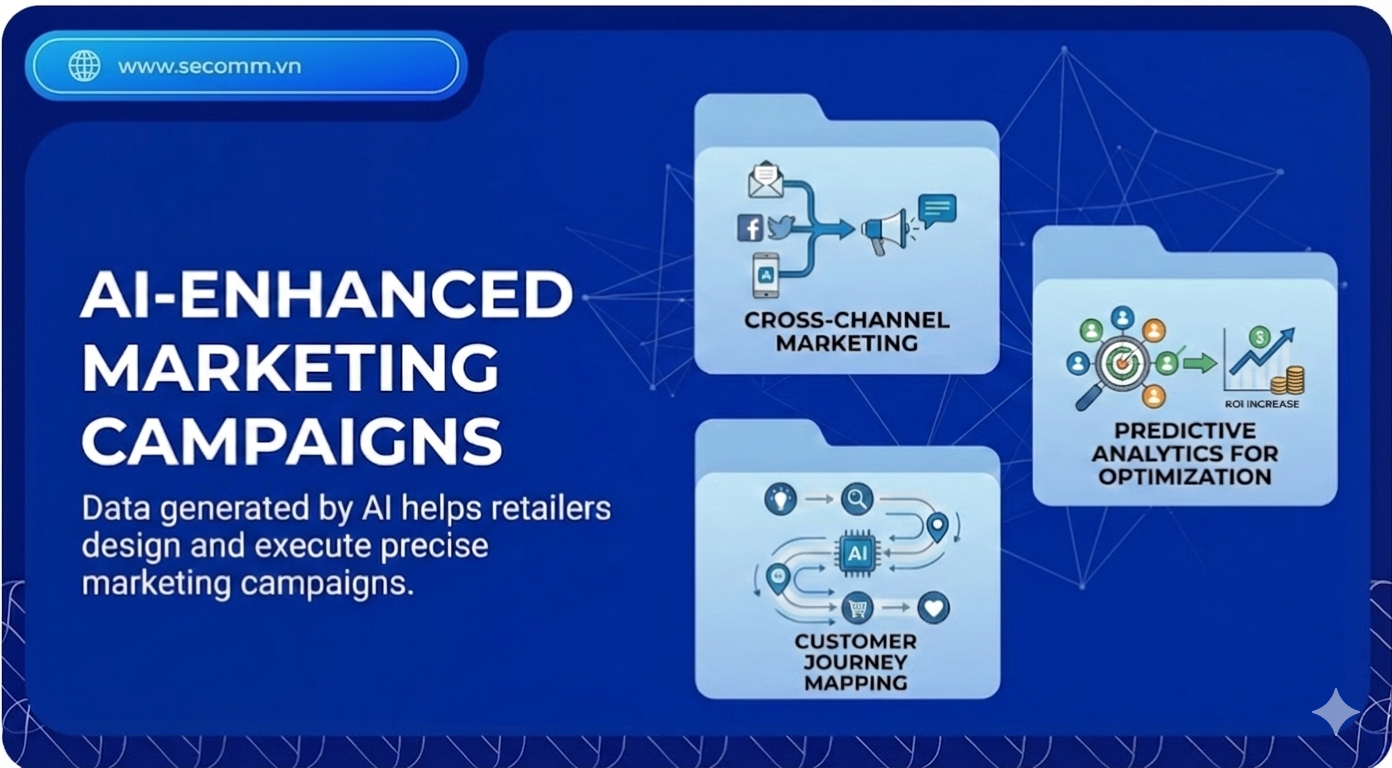
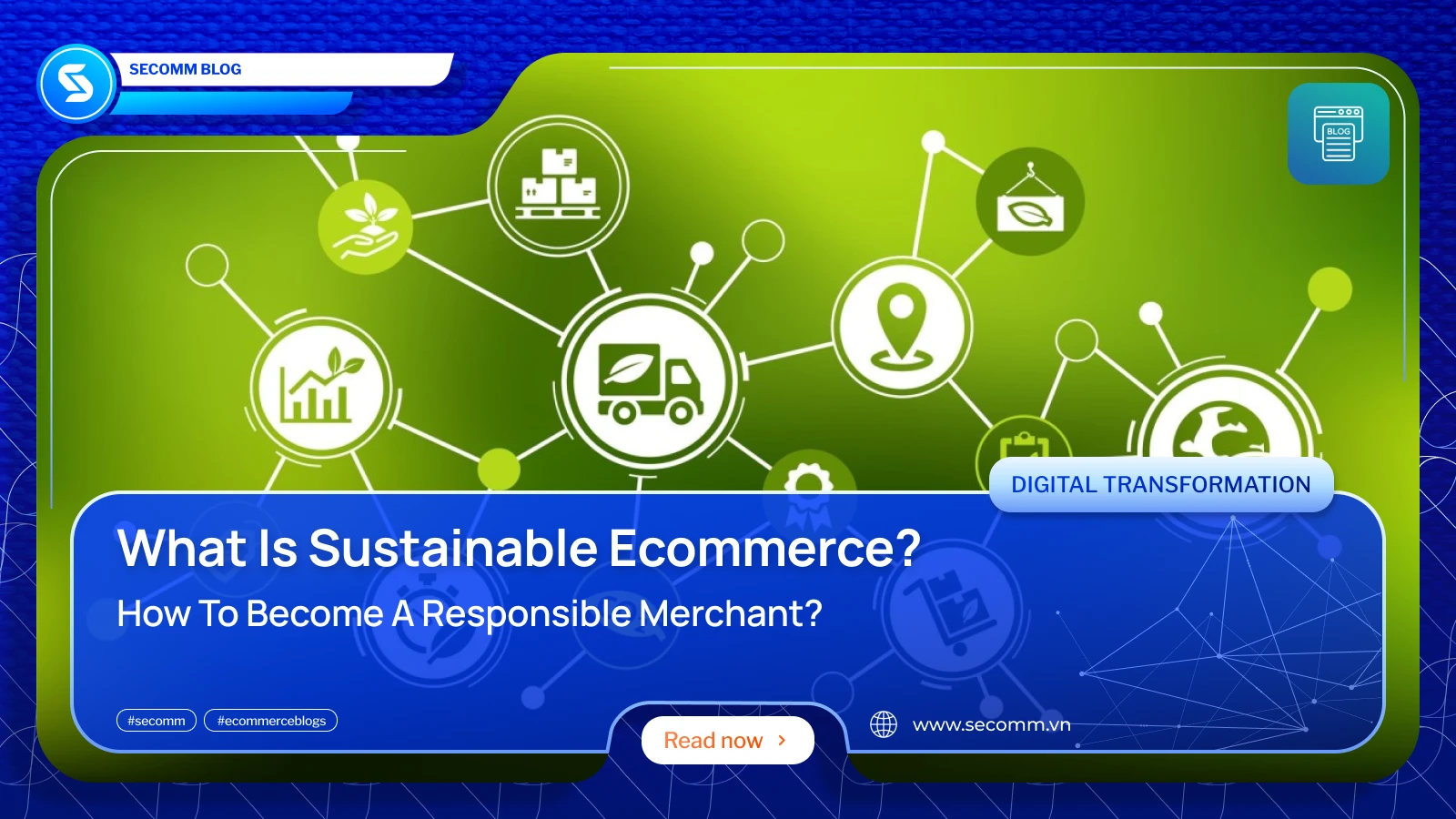
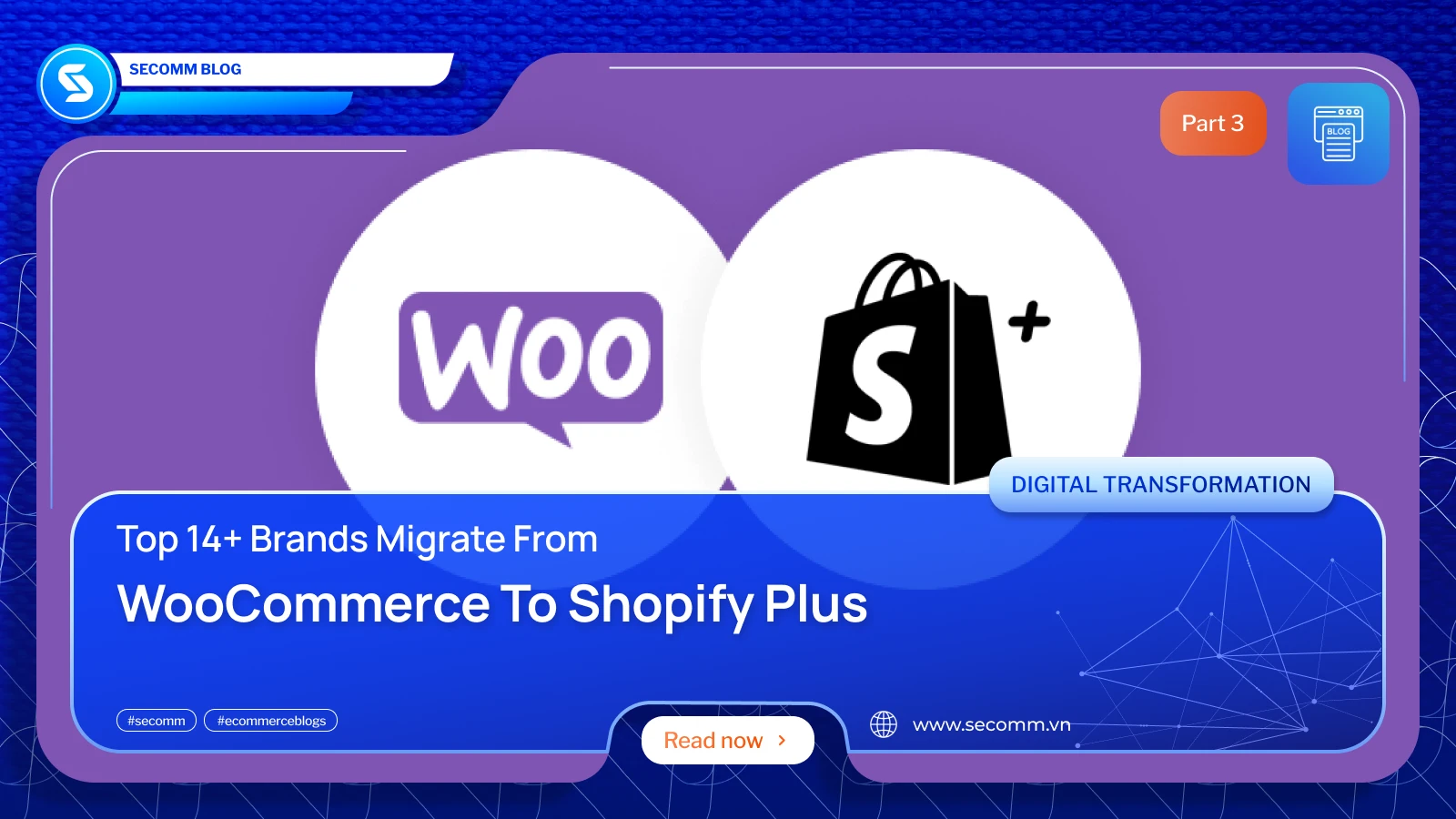
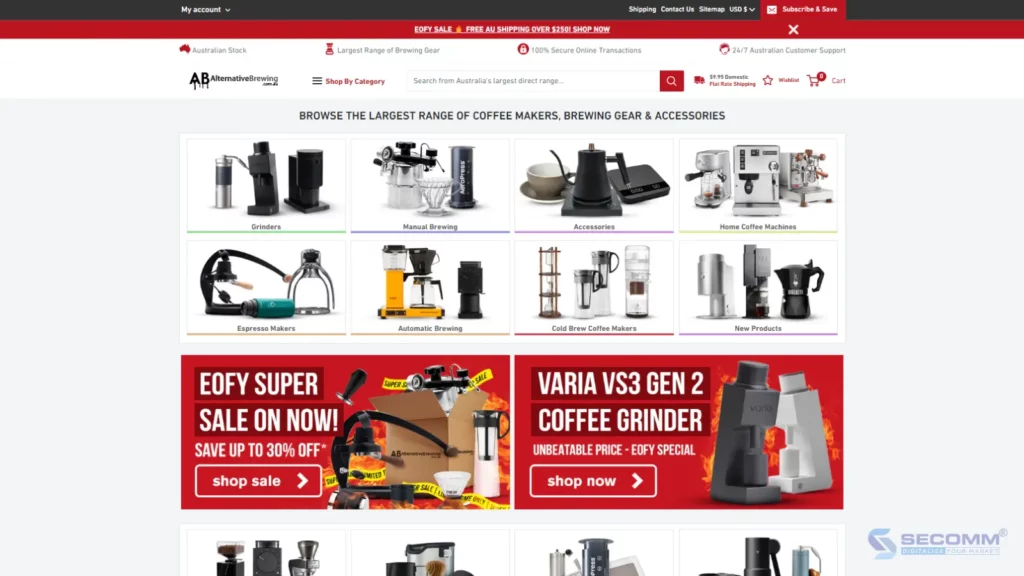



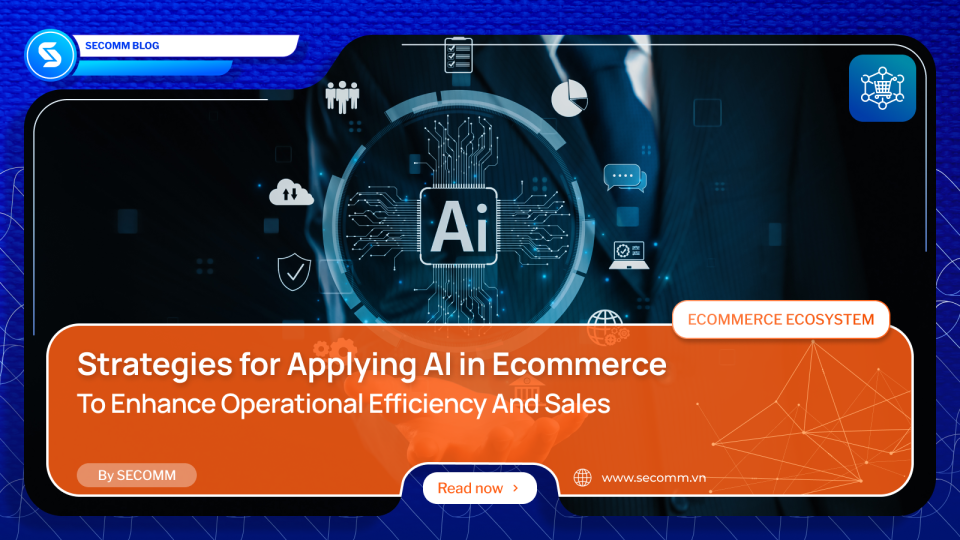

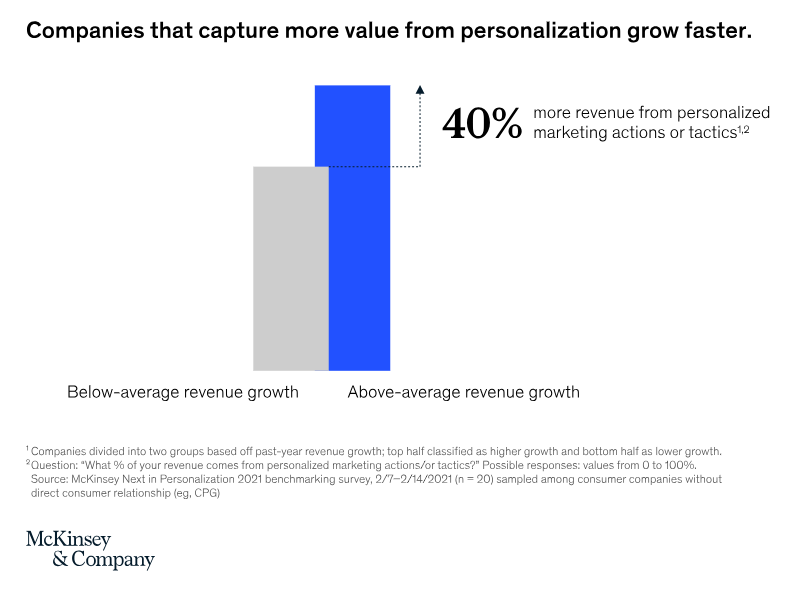
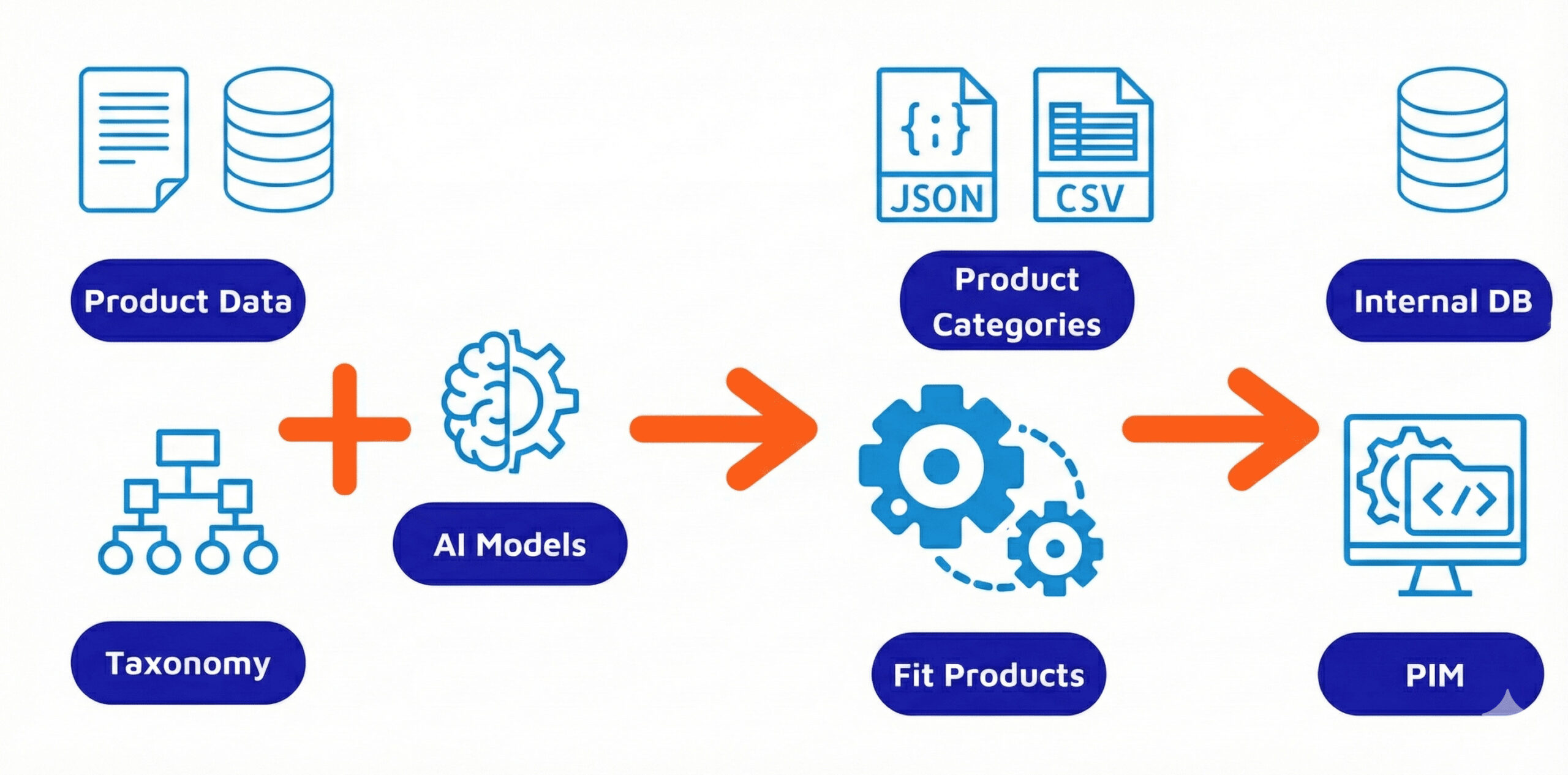
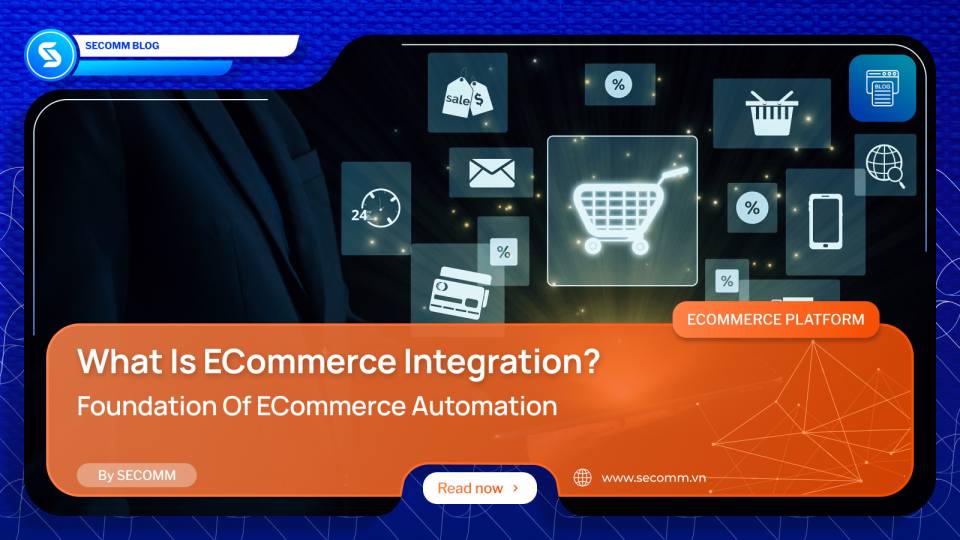
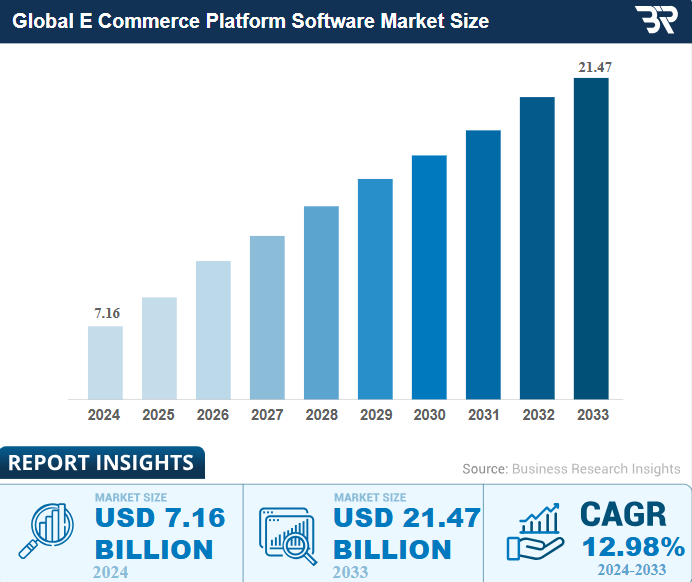

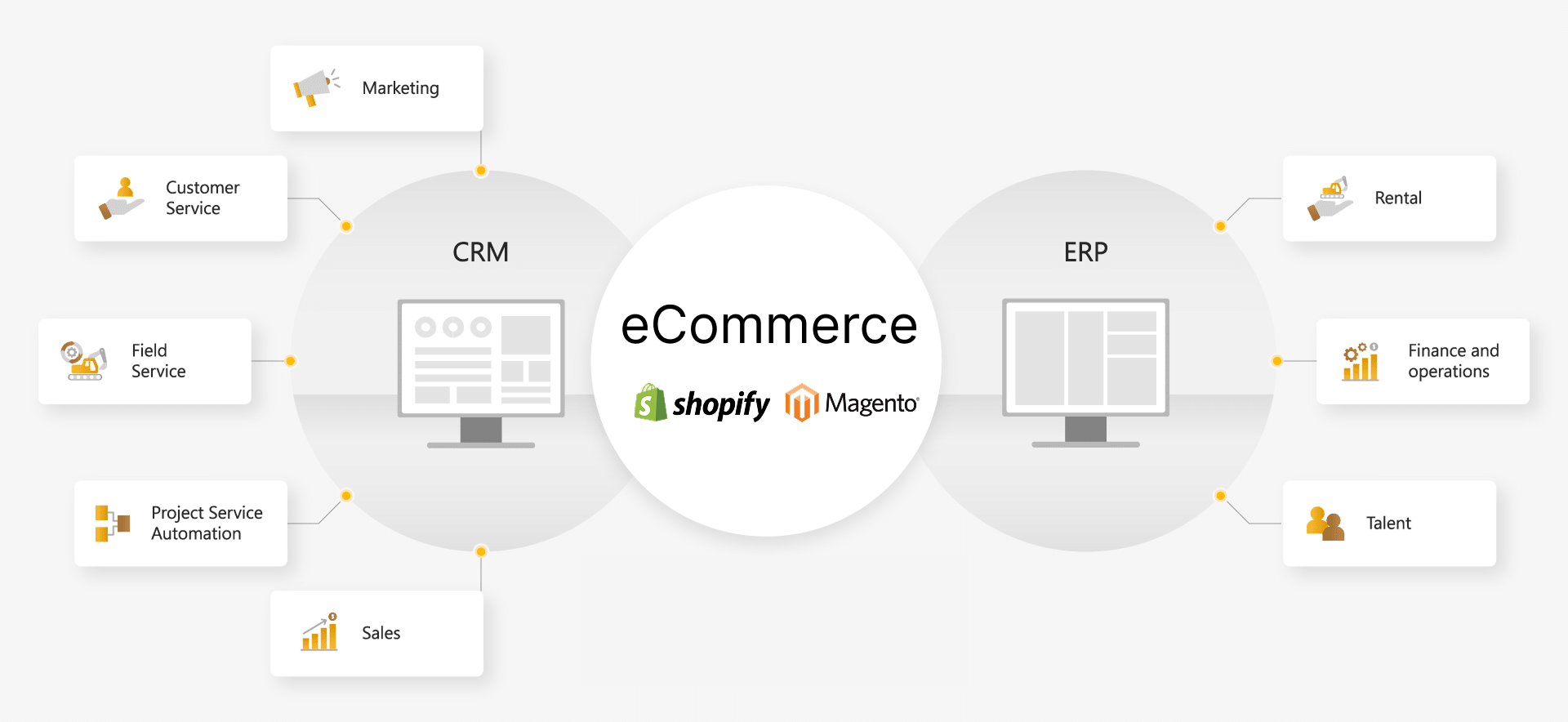
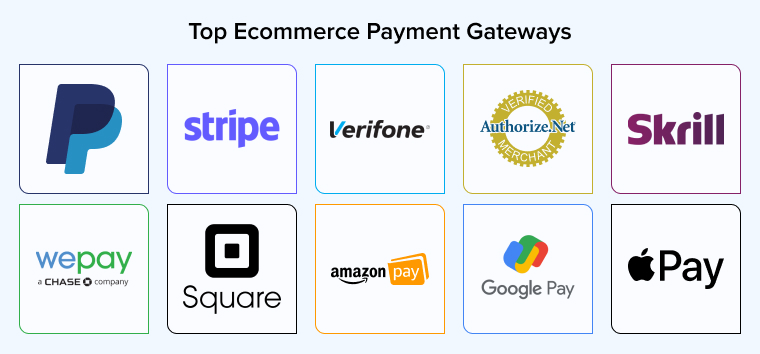
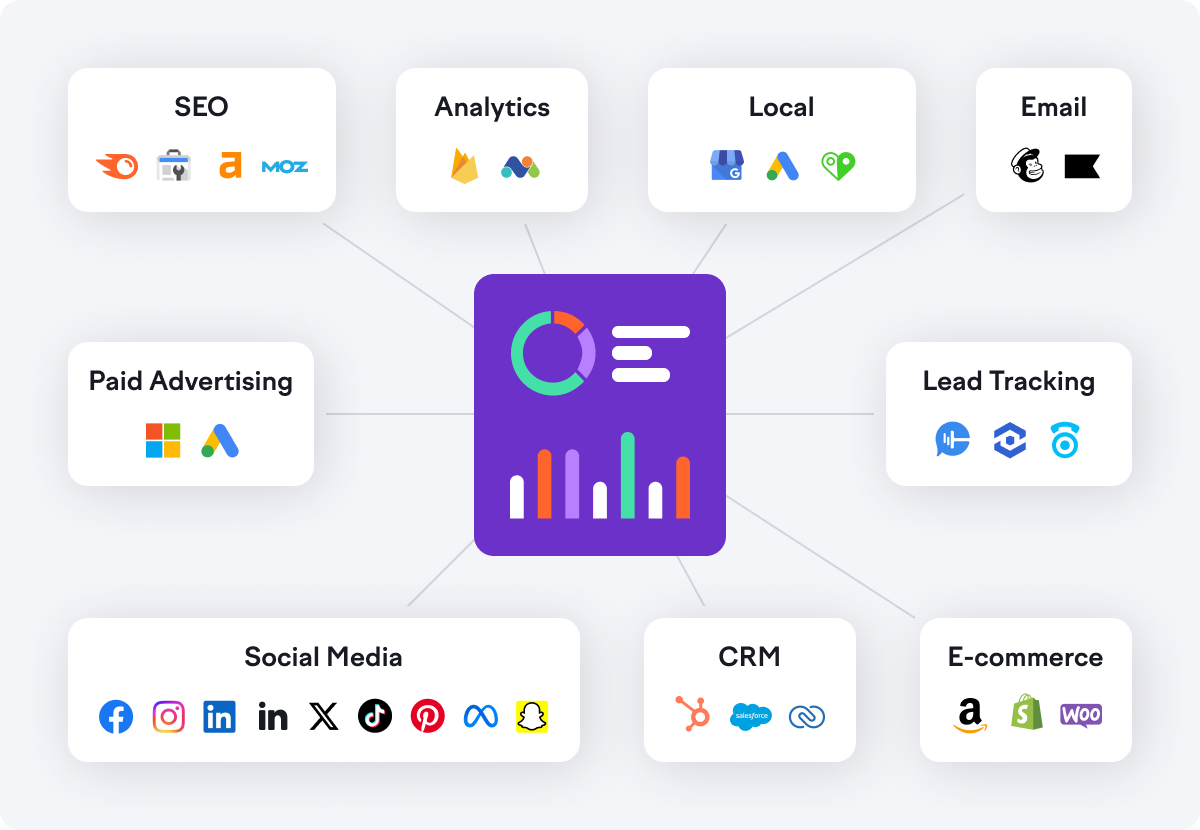
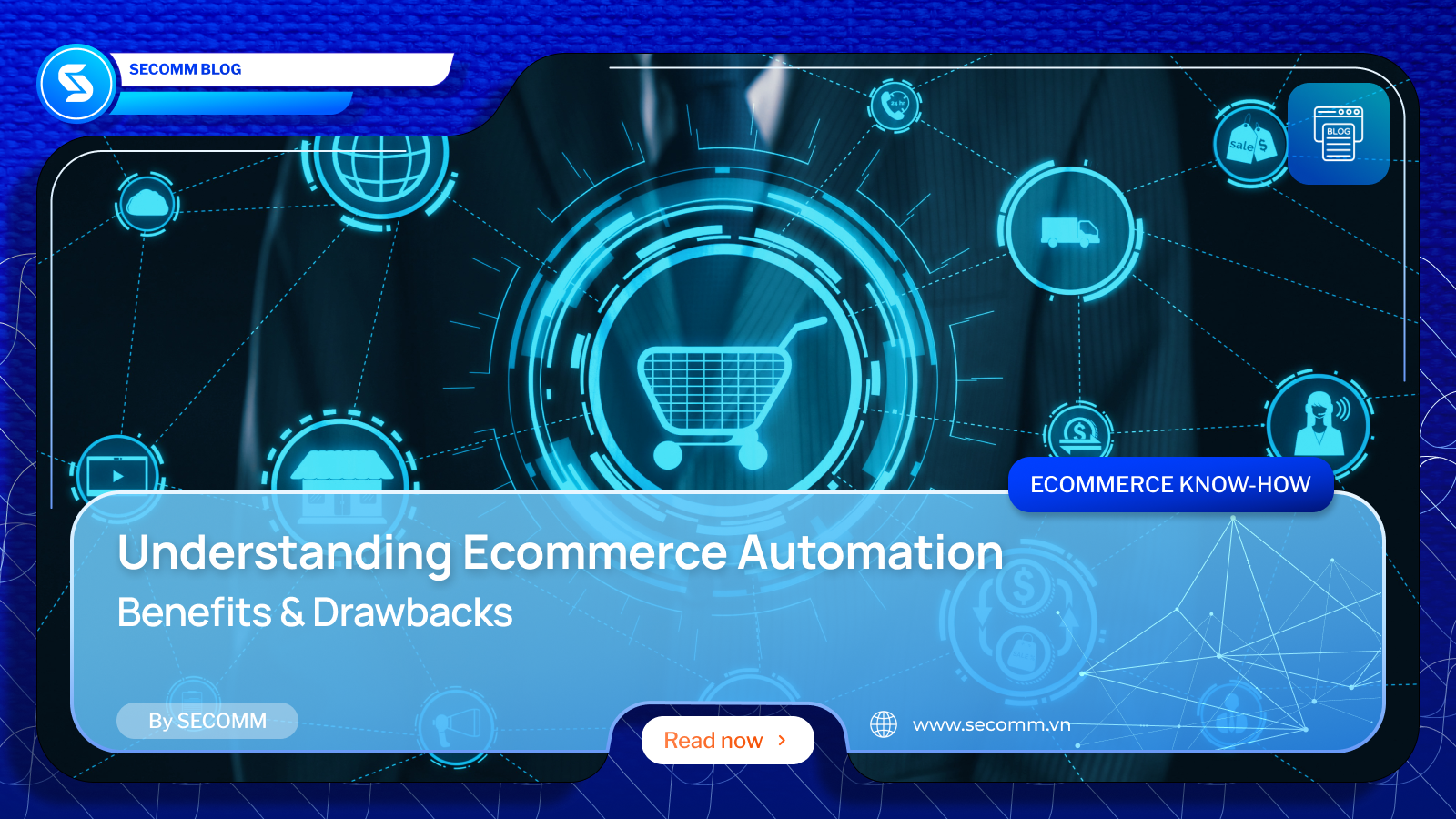
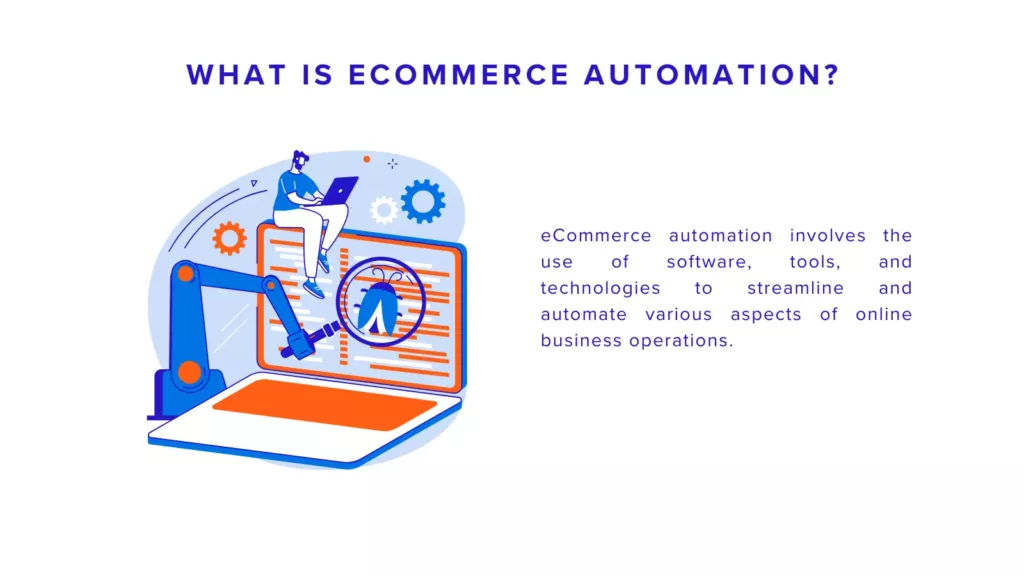
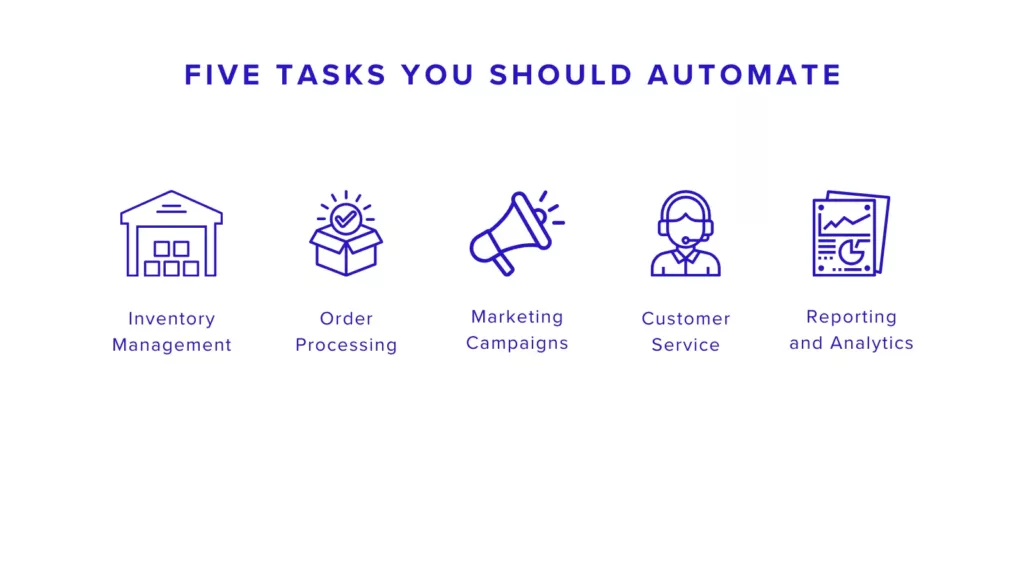
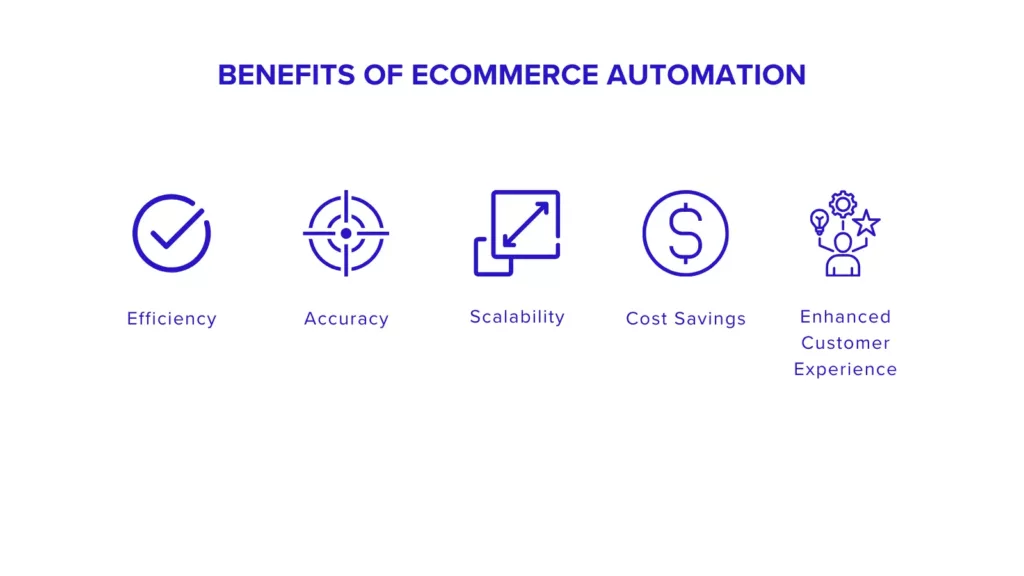
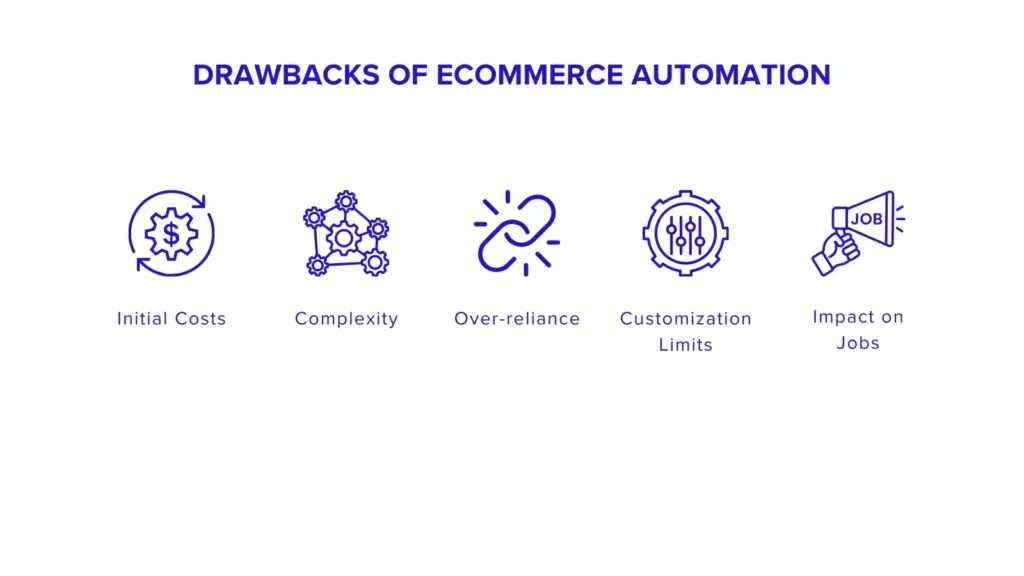
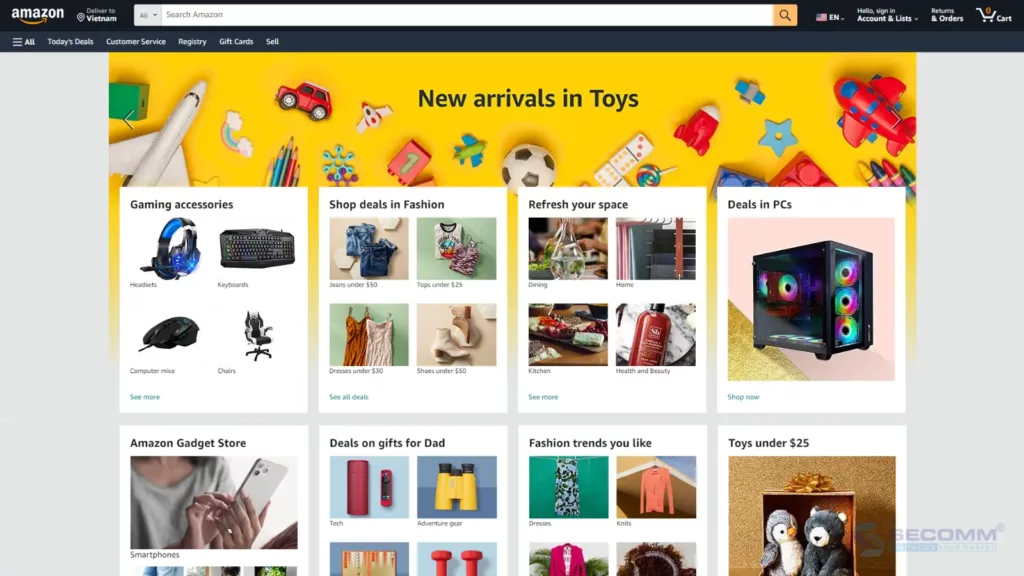
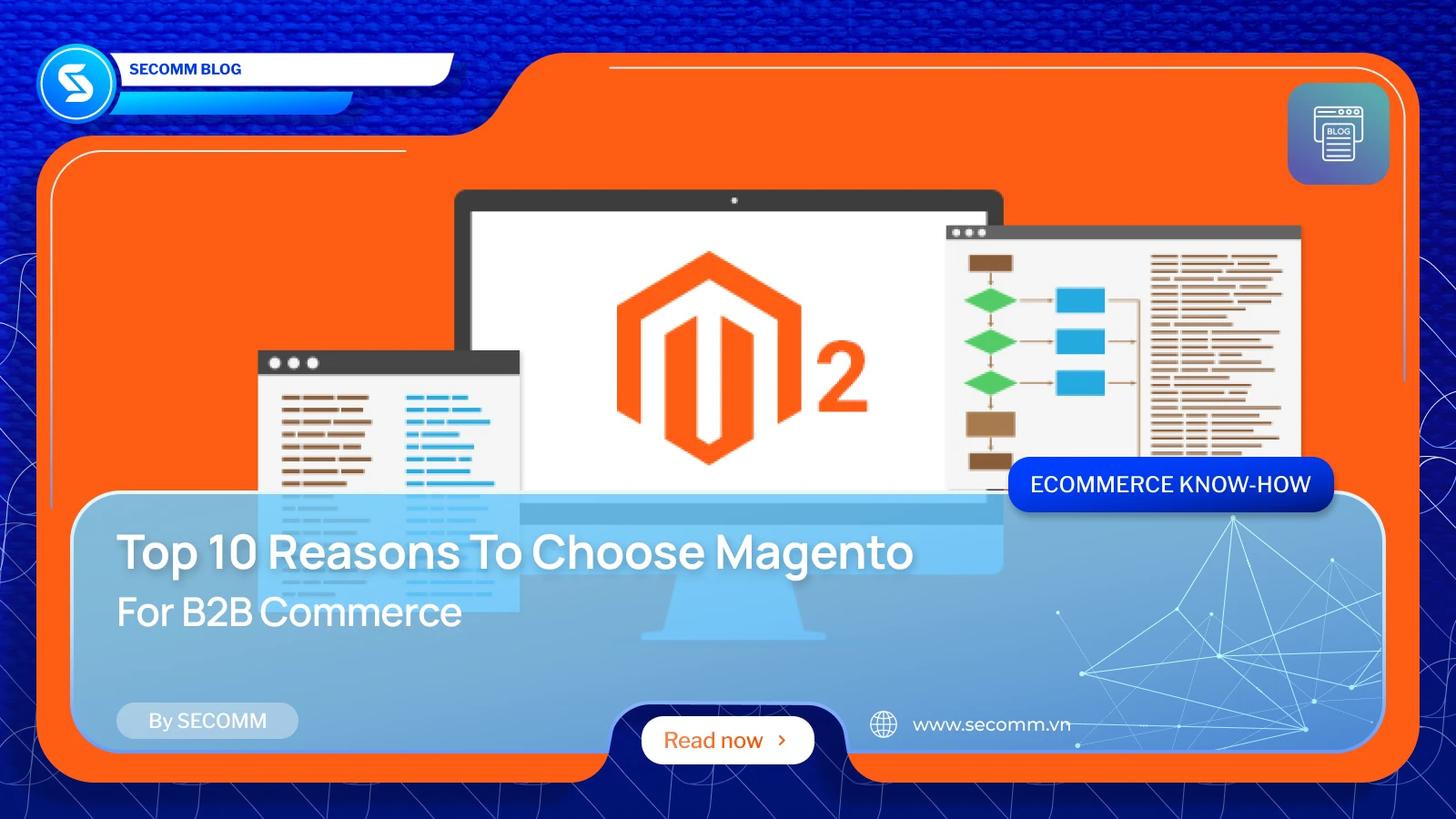
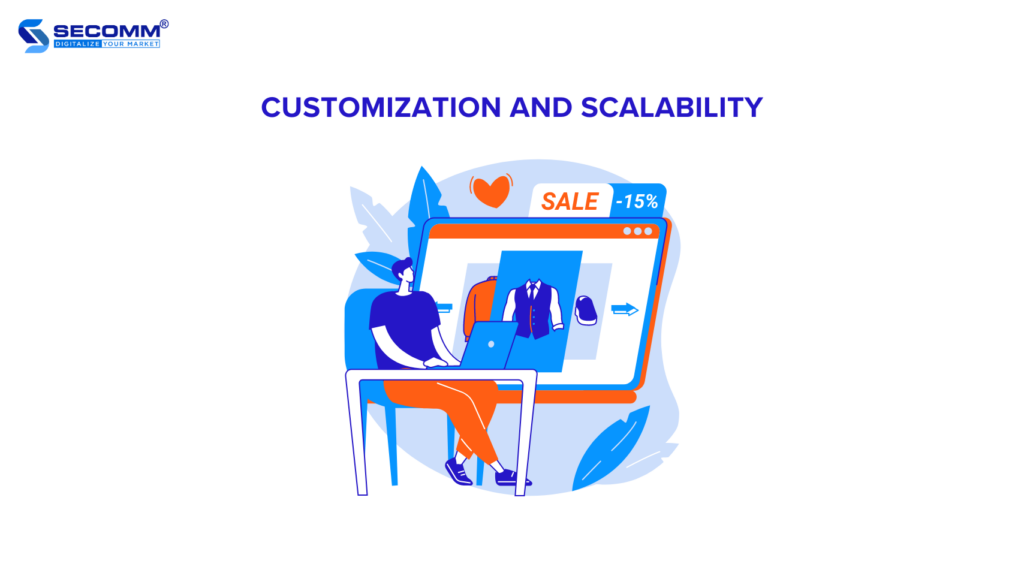
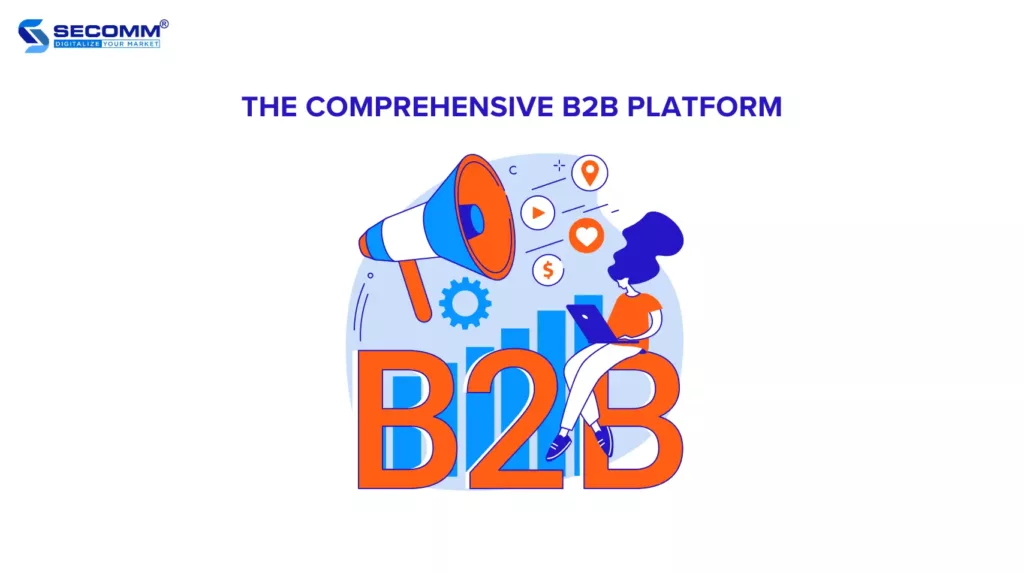
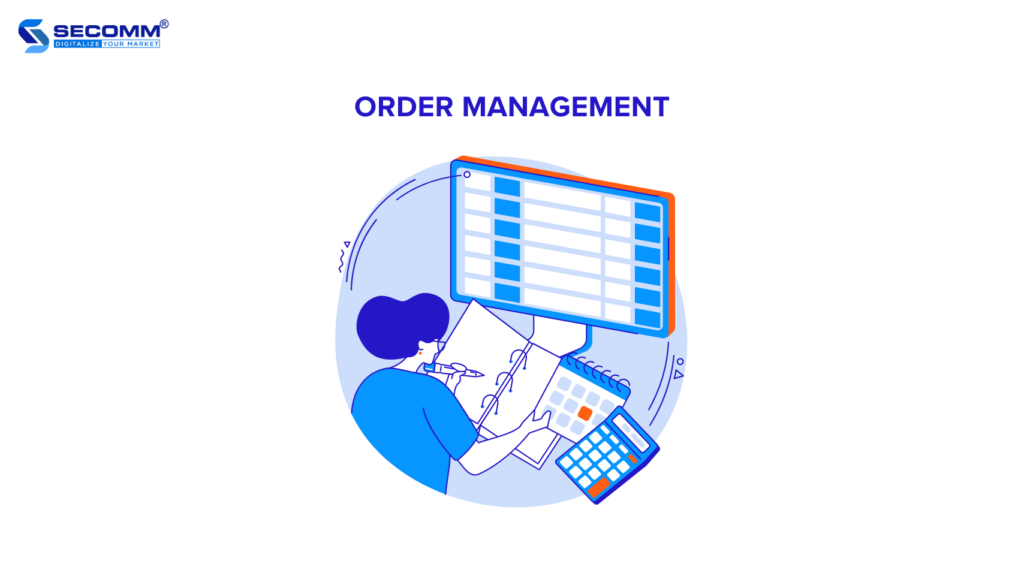
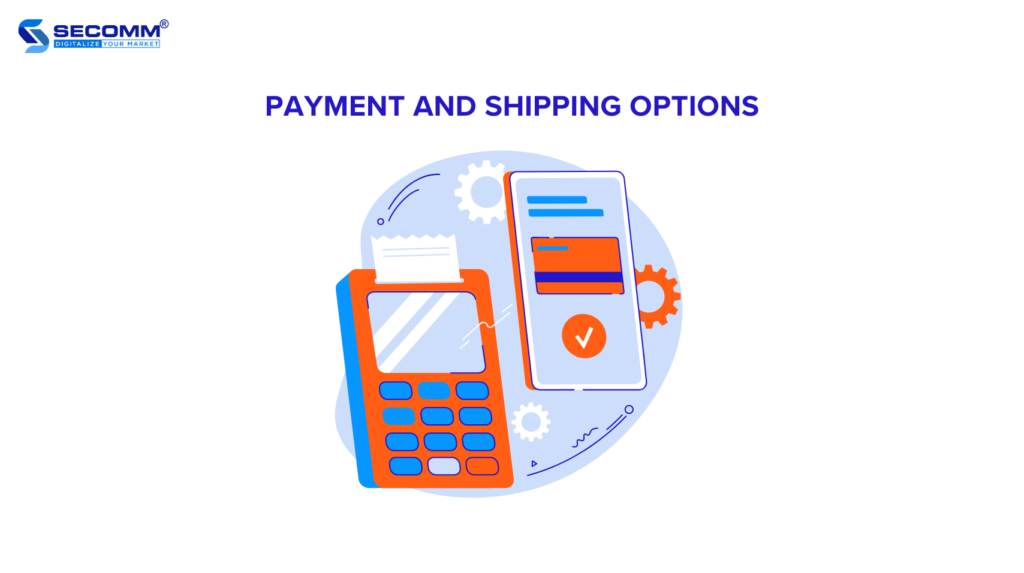
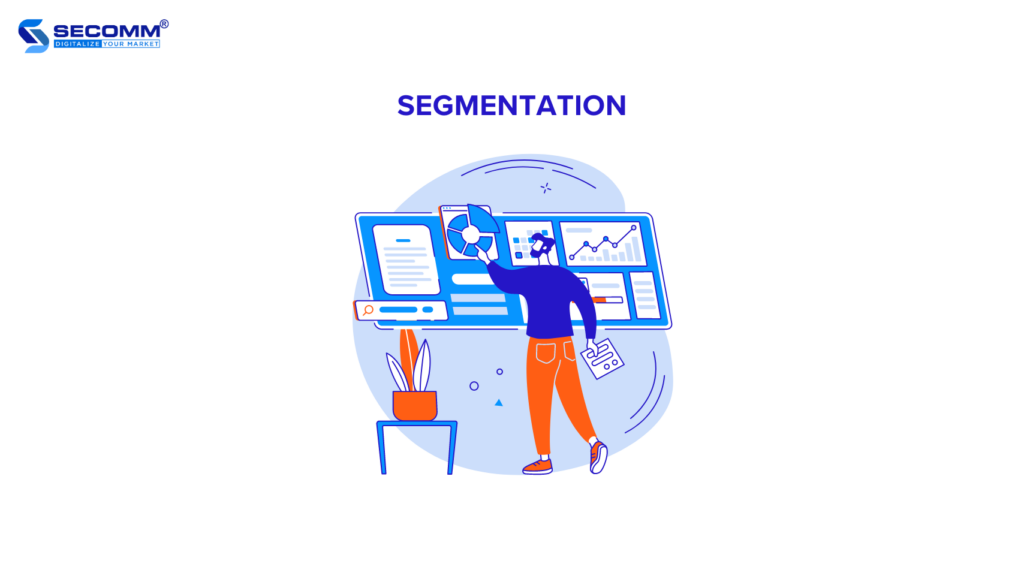
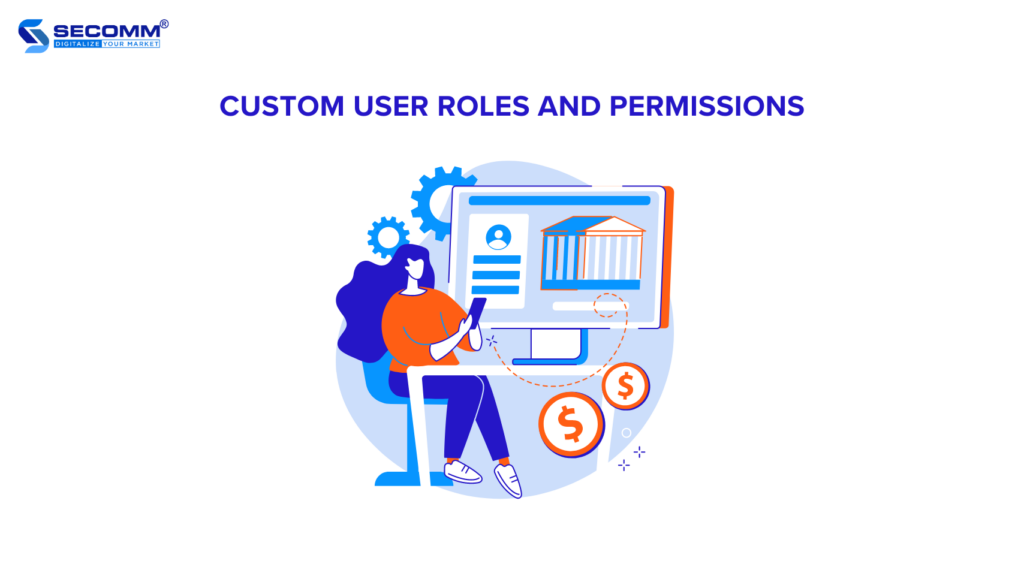
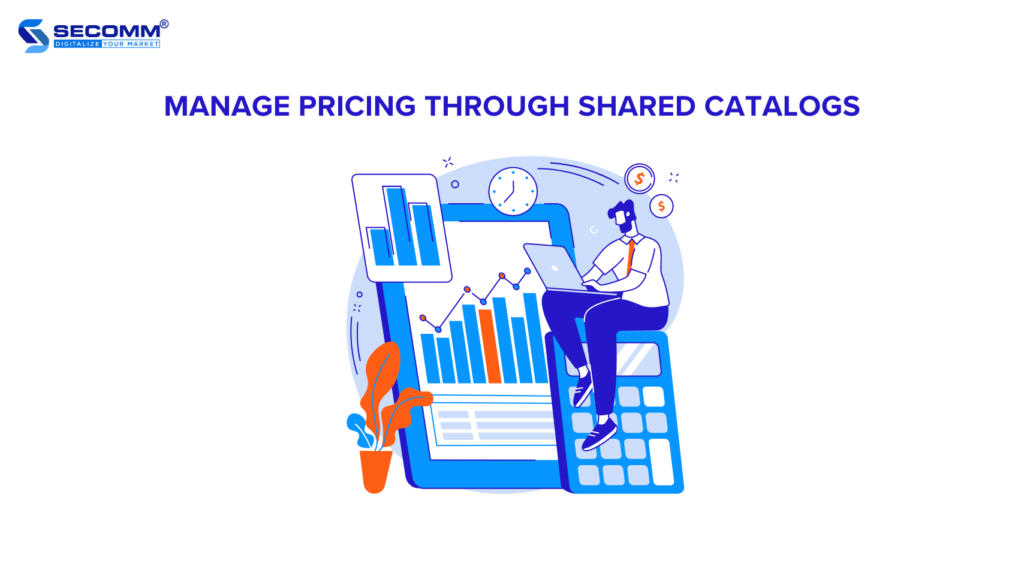
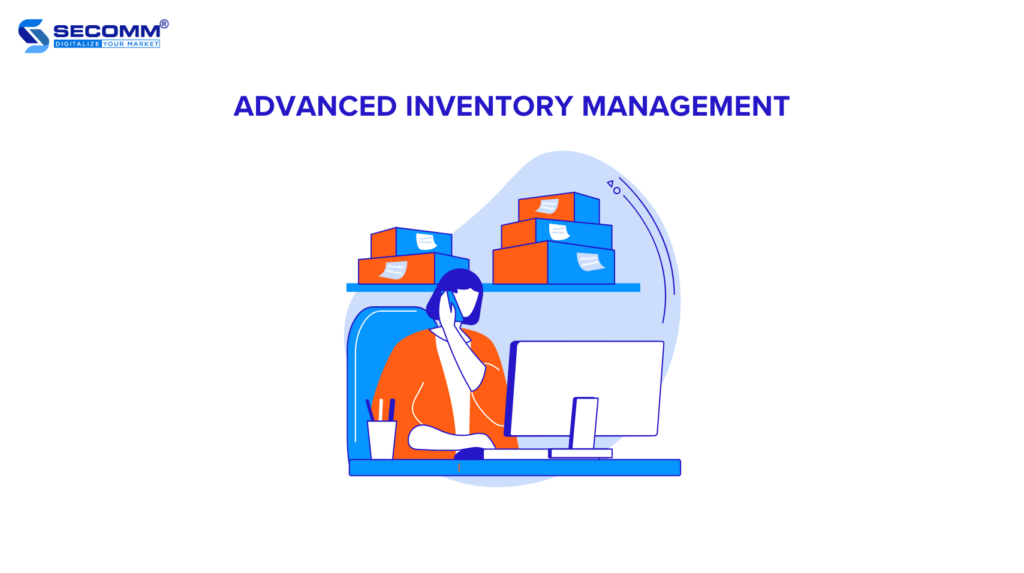
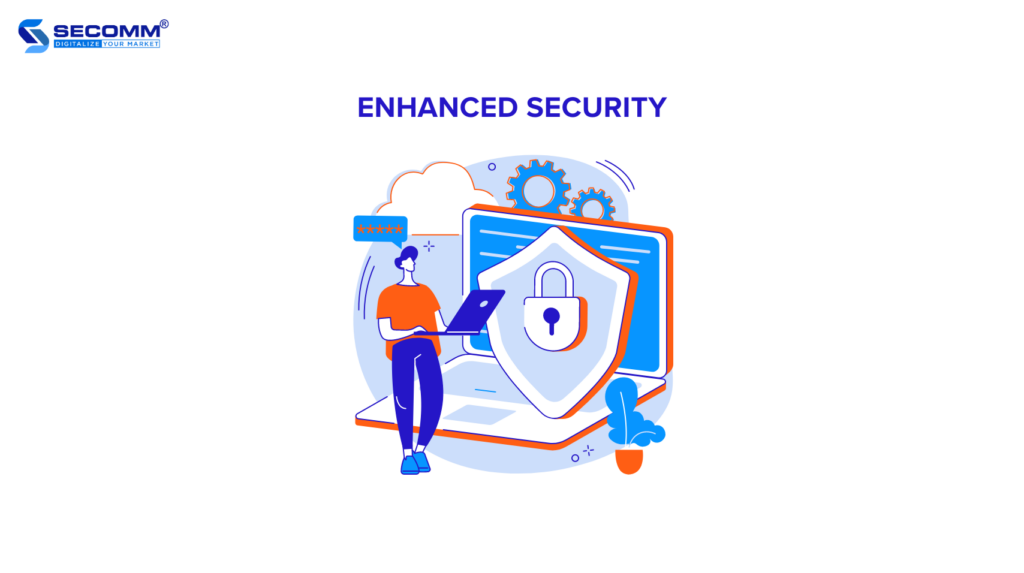

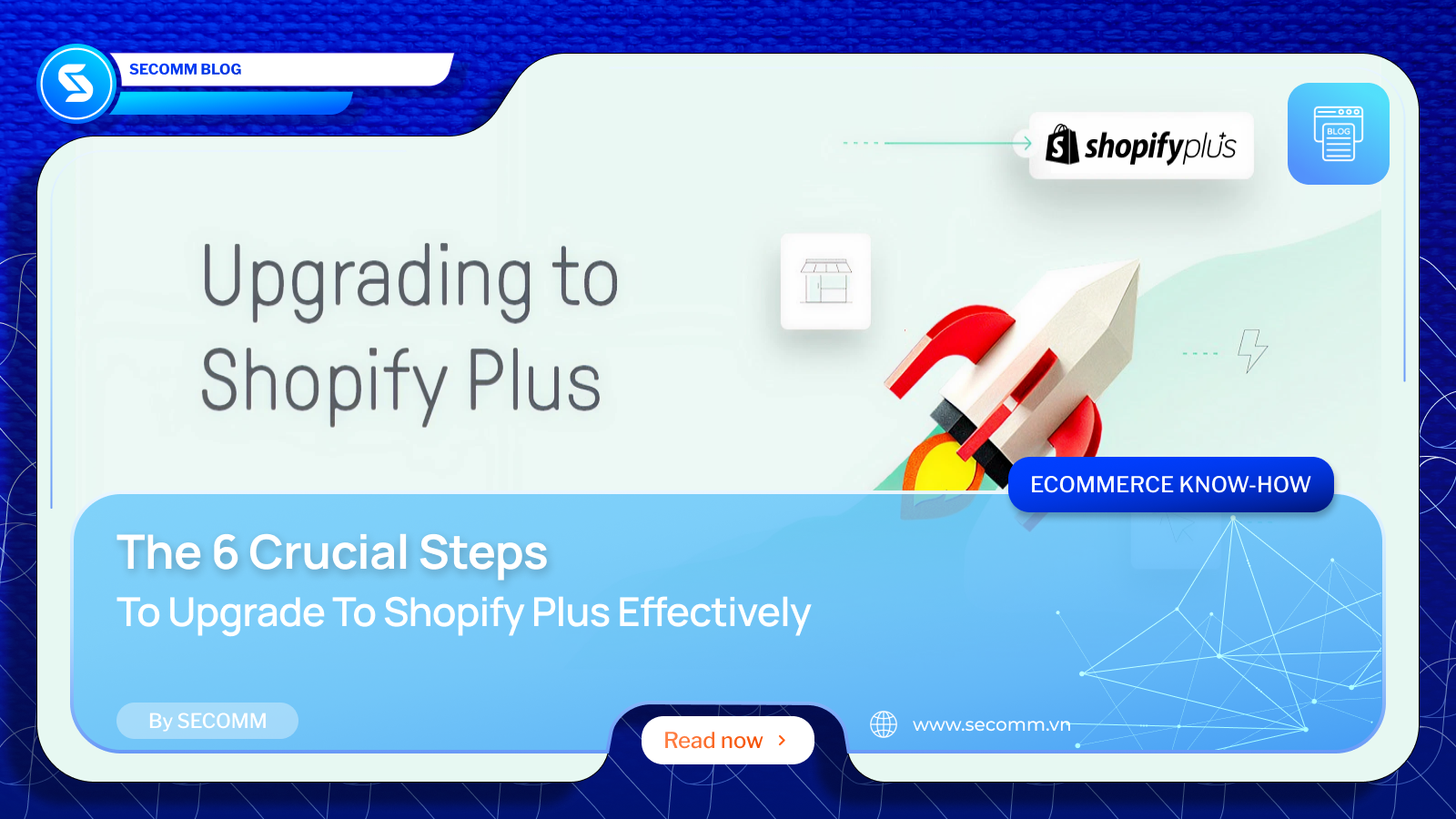
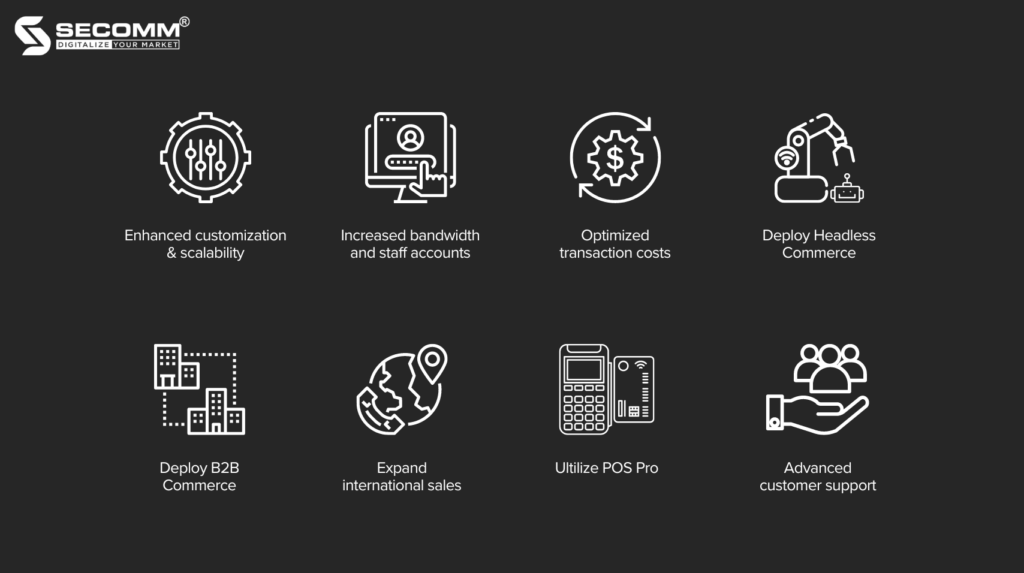
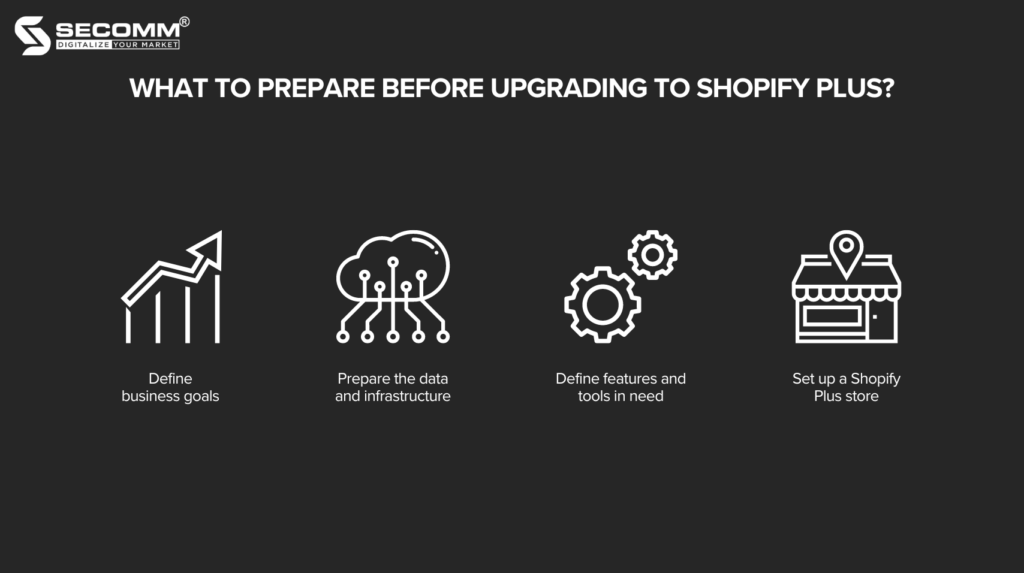
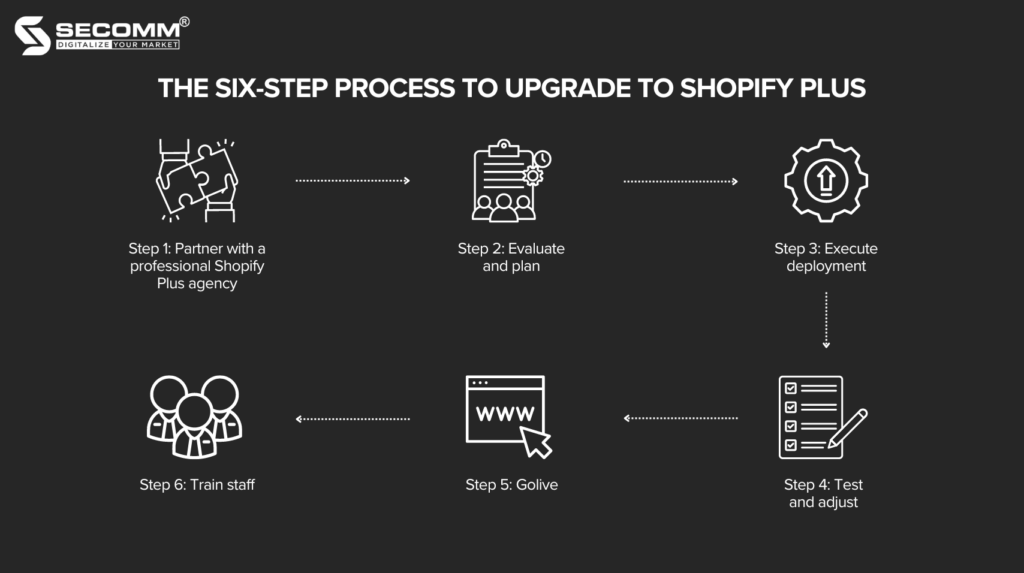





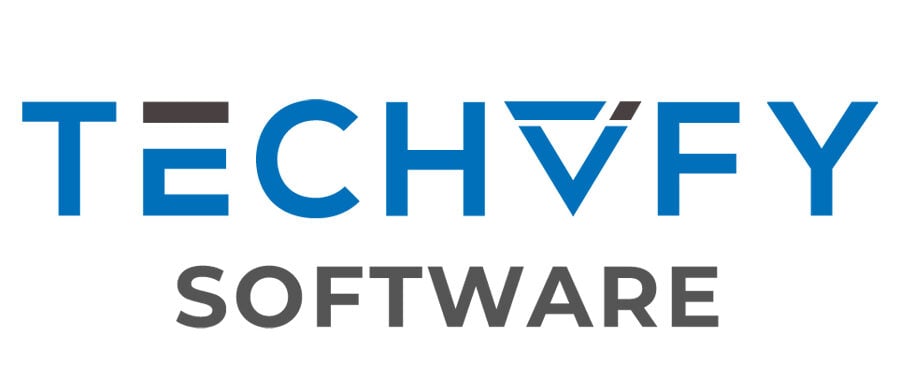





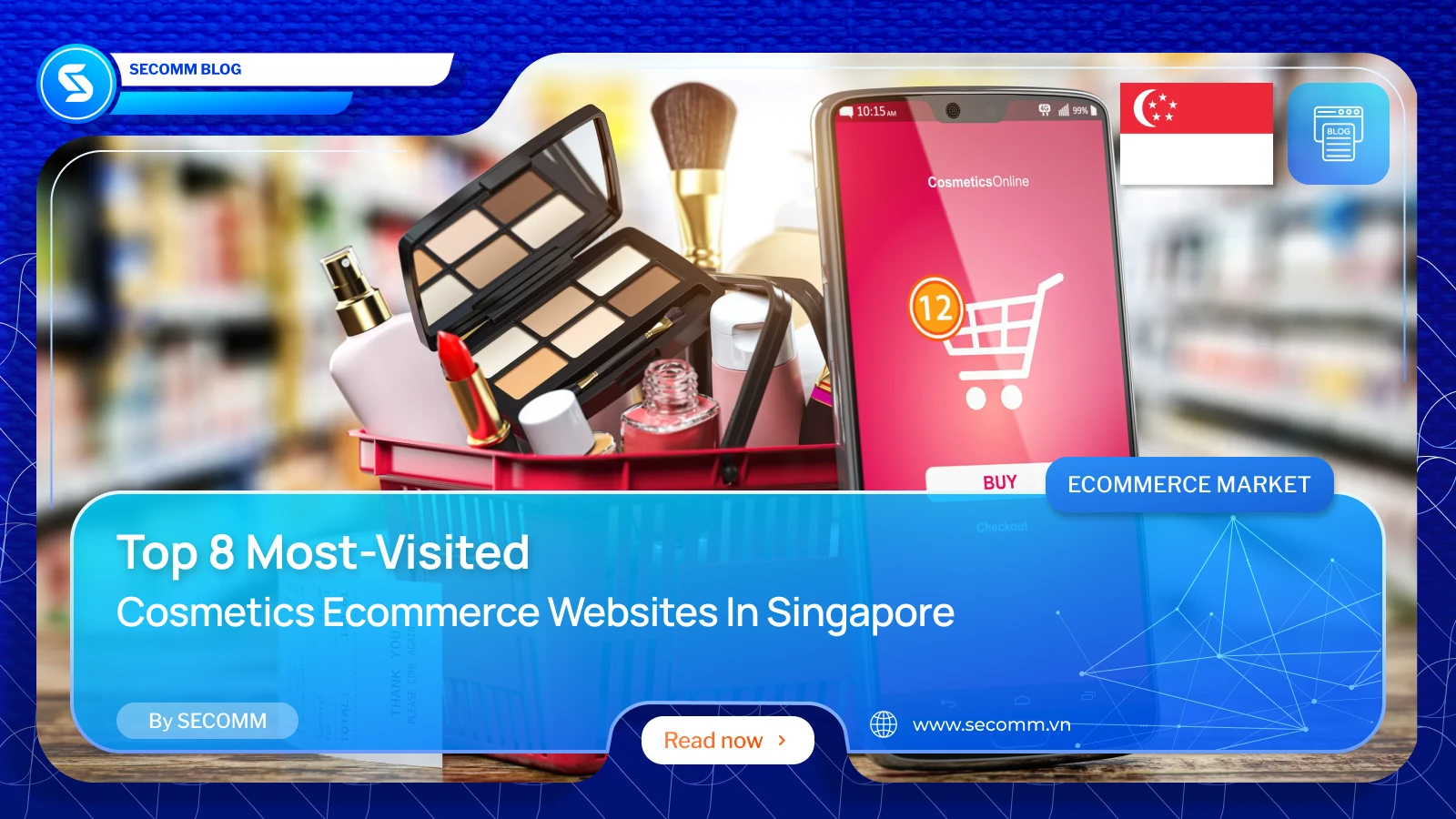

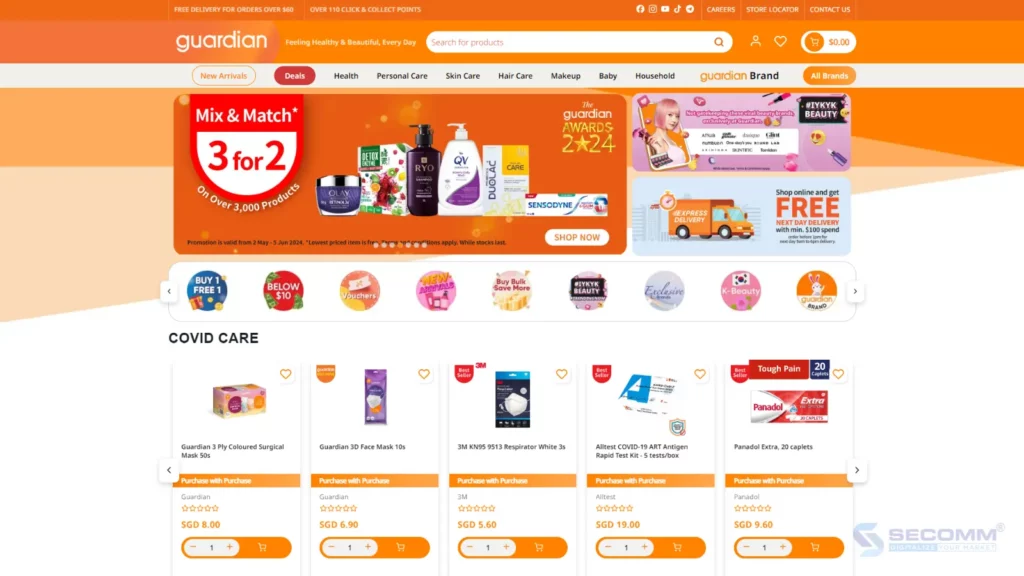






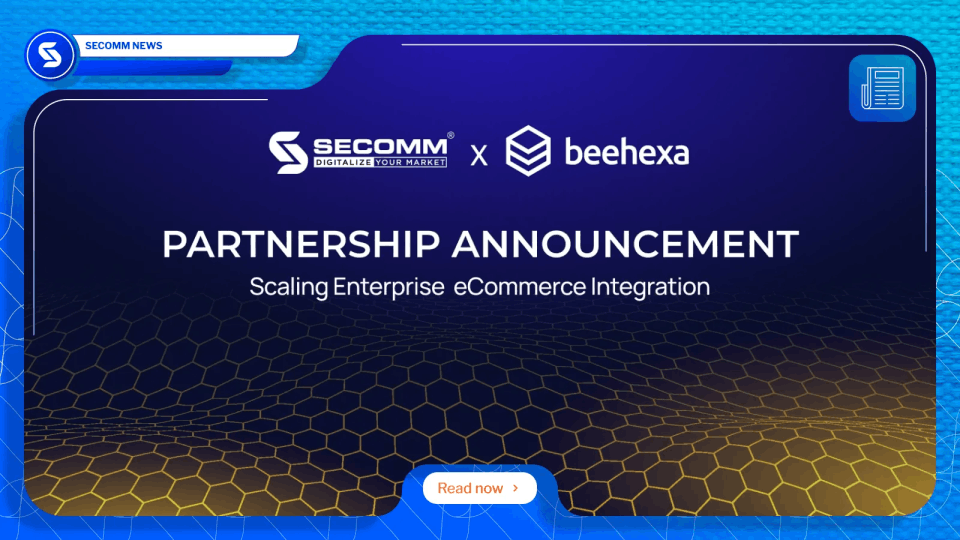
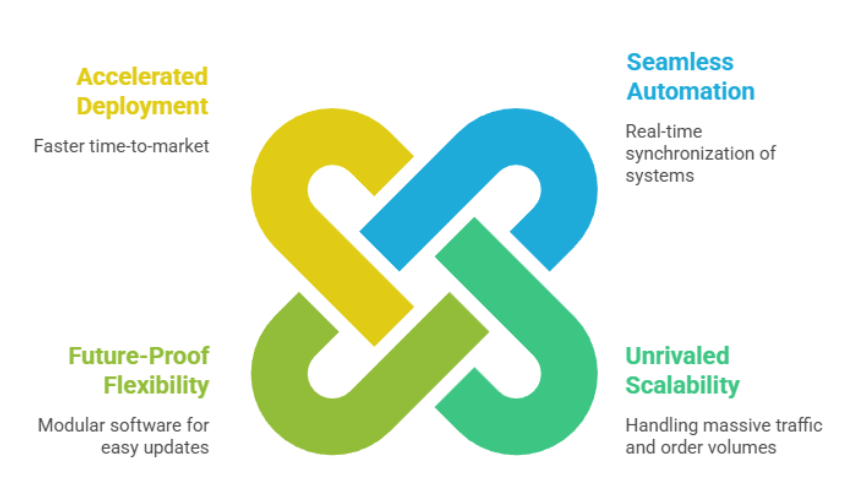


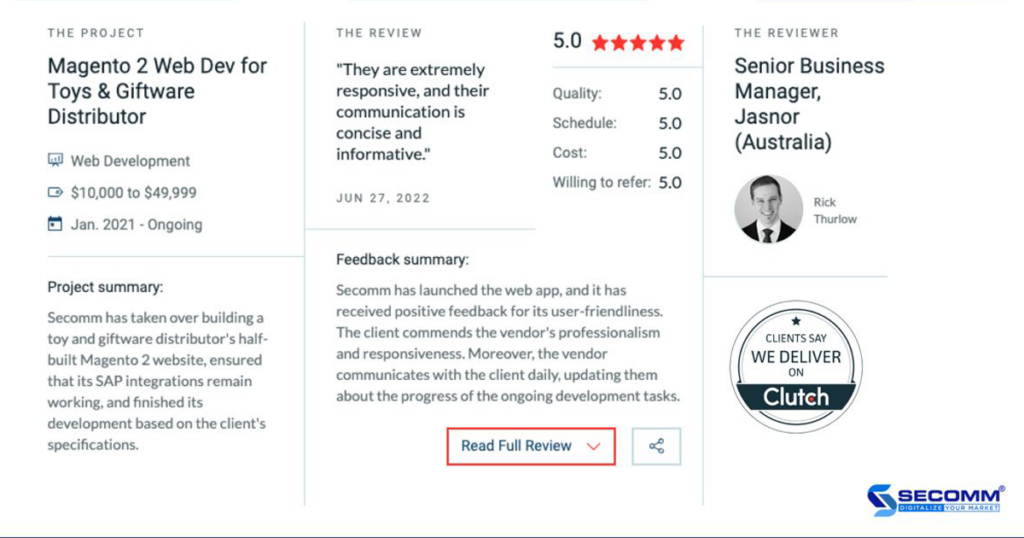
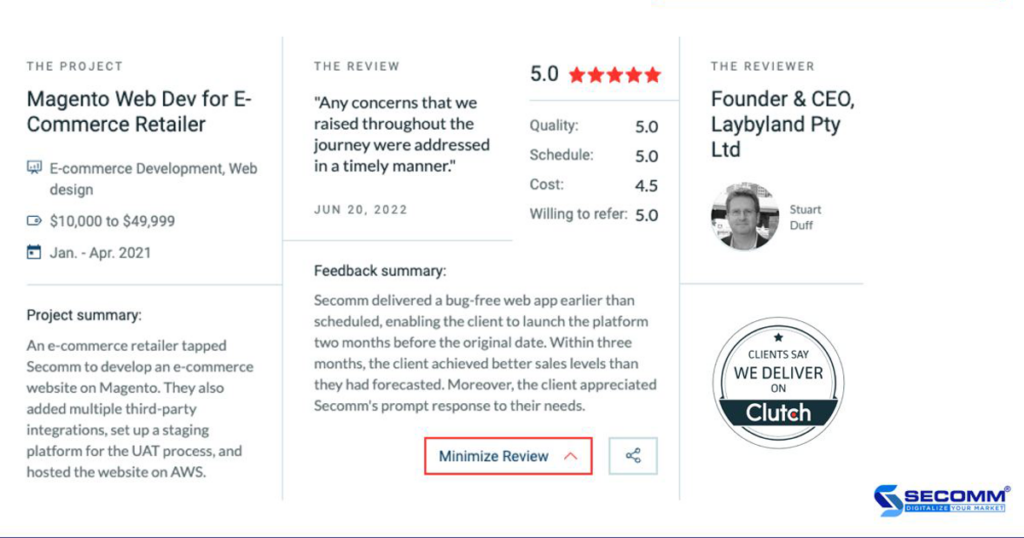



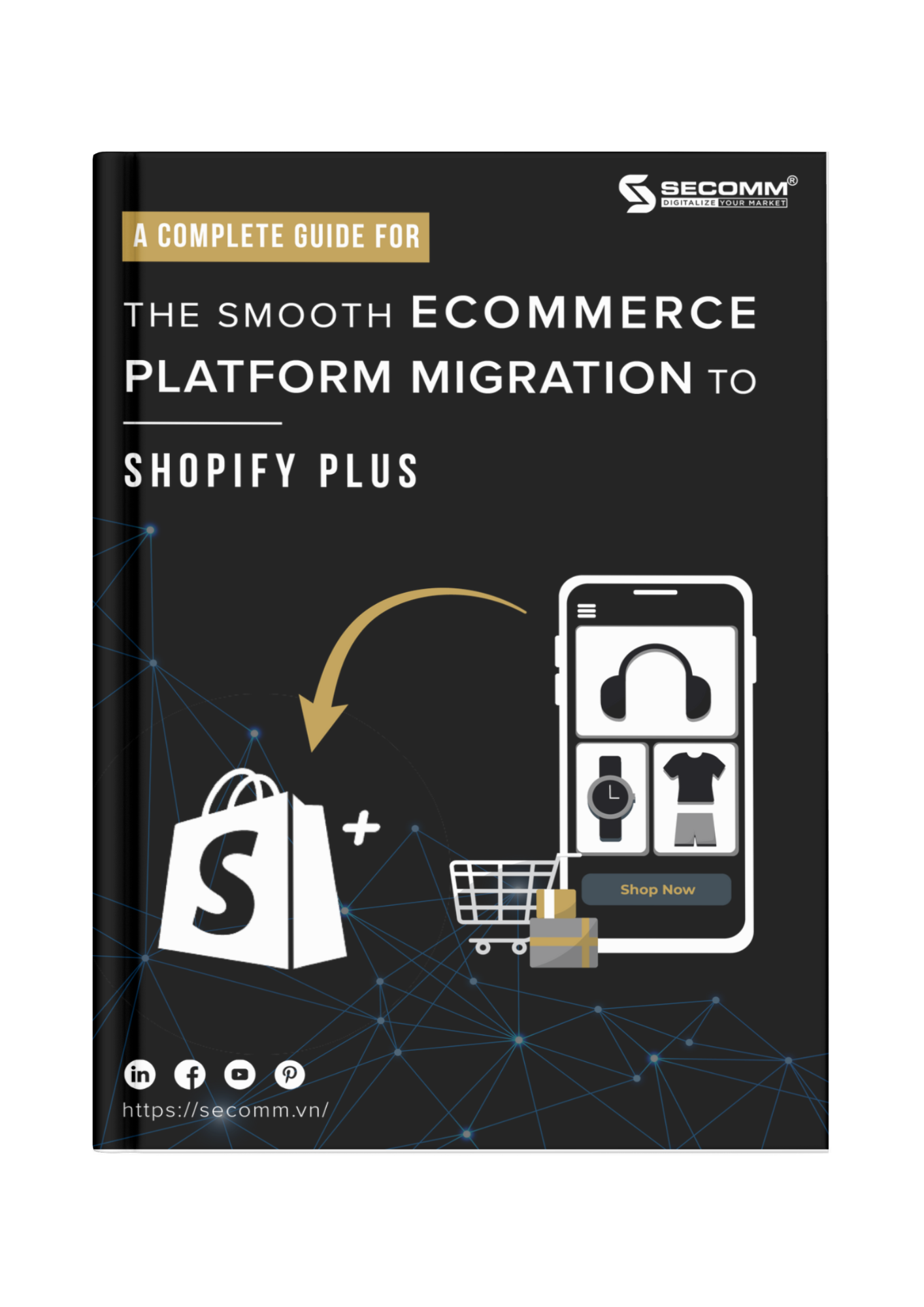



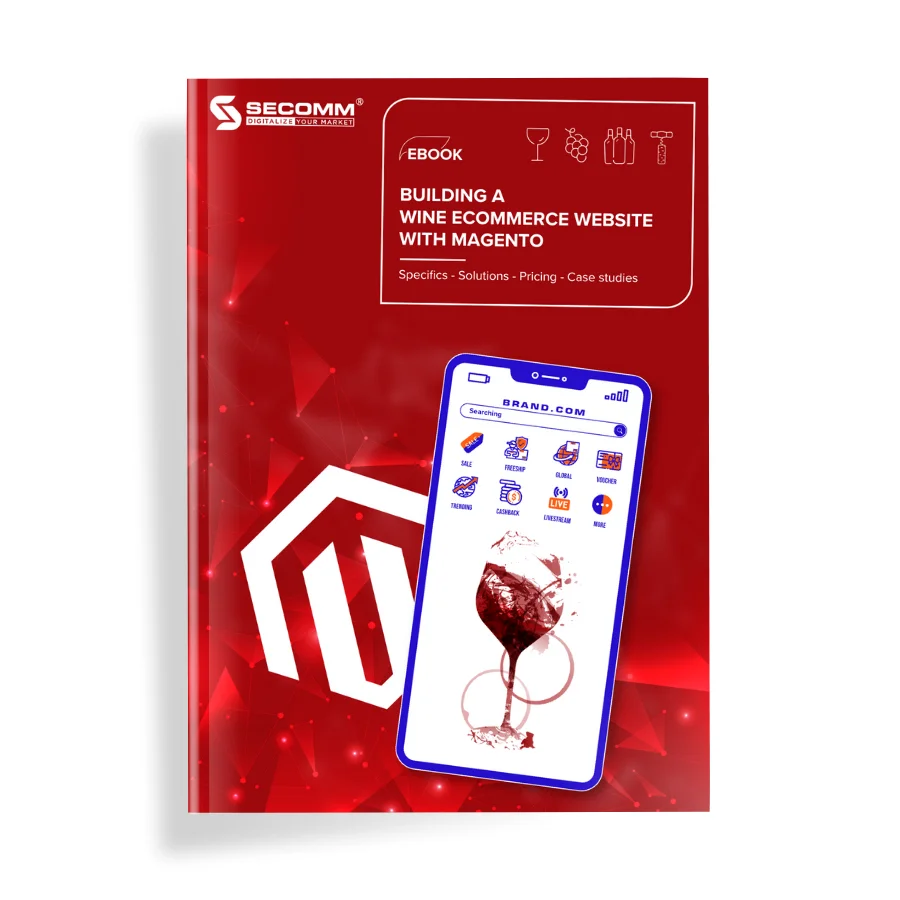
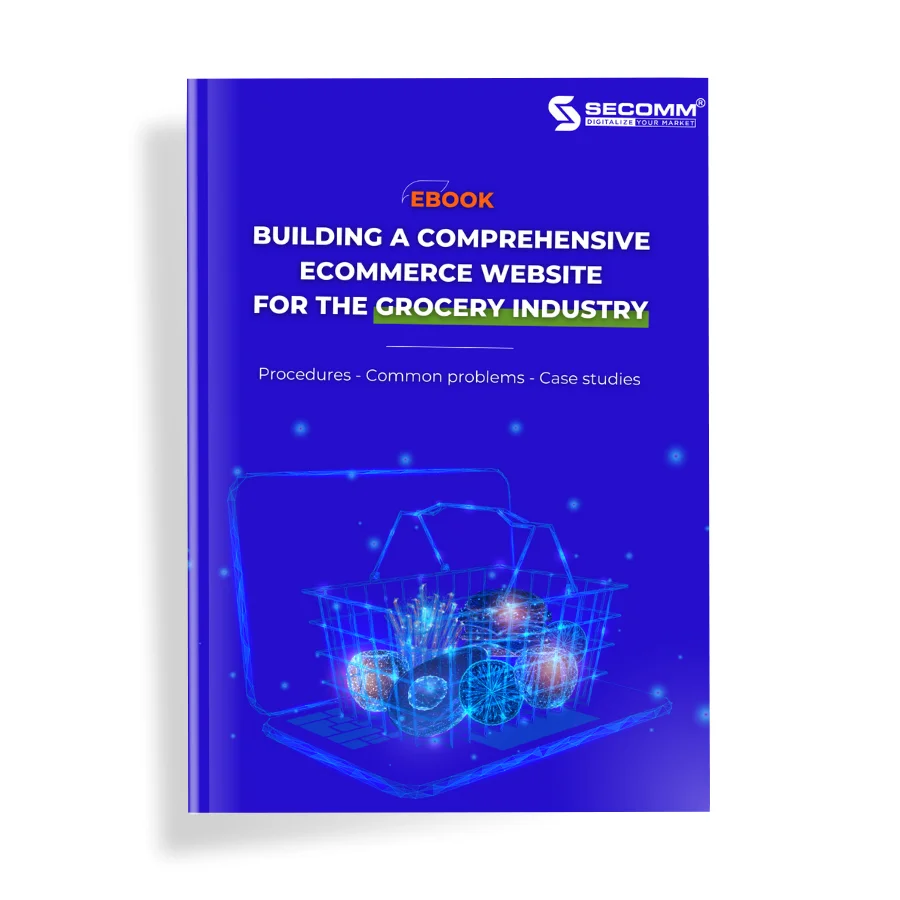
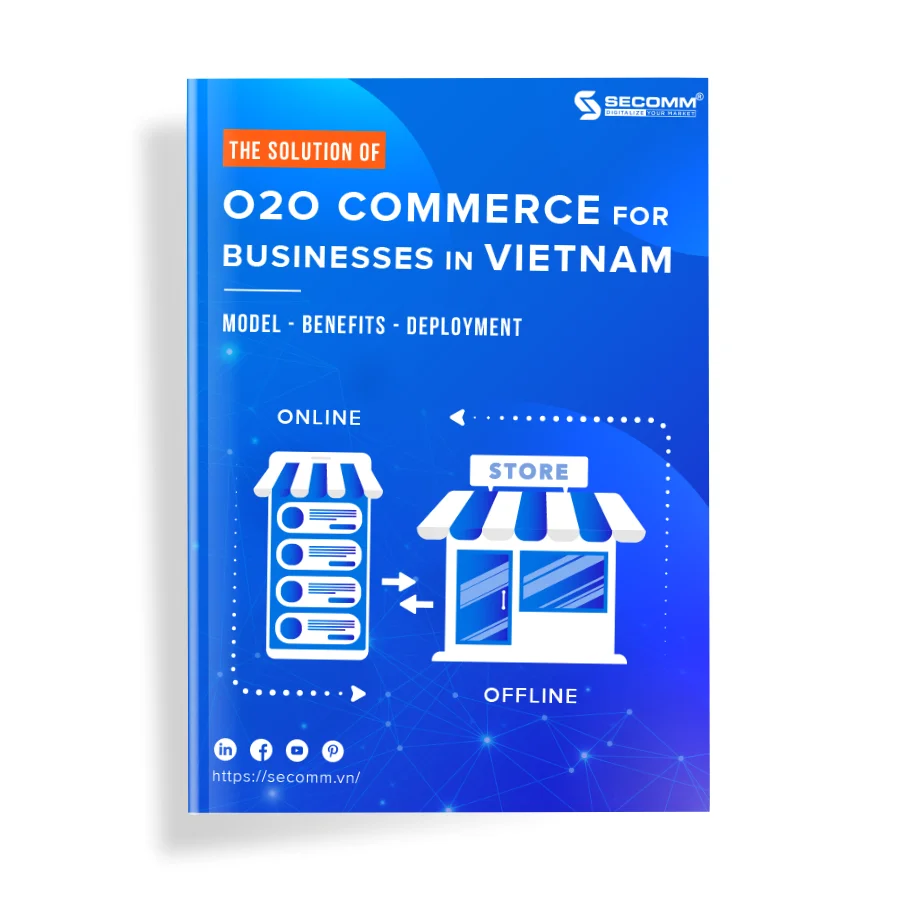
Comment (0)